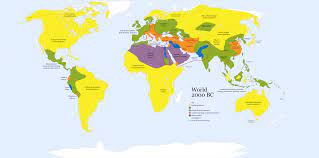To be ignorant of the past is to be forever a child.
Attributed to; Cicero, 106-43 BC
Marcus Tullius Cicero was a Roman statesman, lawyer, scholar, philosopher and Academic Skeptic who tried to uphold optimate principles during the political crises that led to the establishment of the Roman Empire.

Aristotle famously wrote, "The more you know, the more you realize you don't know." From there, generally, your confidence grows as your experience increases.
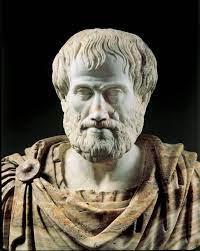
"A goal without a plan is just a wish."
Attributed to; Antoine de Saint-Exupéry (June 29 1900 – July 31 1944) was a French writer, poet, aristocrat, journalist, and pioneering aviator.
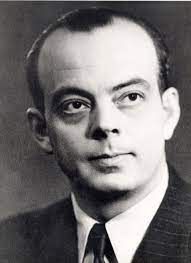
"Achieving success is when one gains the habit of setting goals and realising them."
Attributed to; Michael Harvey, Senior Partner HPC Ltd
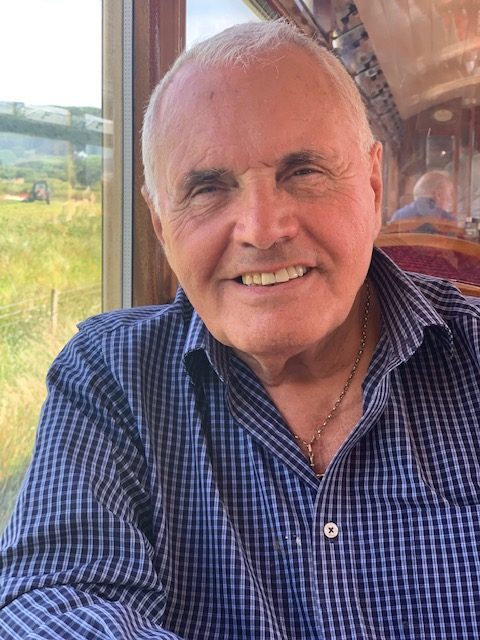
"Assign a deadline to your biggest objectives and stick to it, so they don't become just another litany of "what ifs" and sad regrets."
Attributed to - Carlos Wallace, born in East, Texas, Professor Carlos Wallace is a 5th generation railroader and Navy veteran. A member of the American Legion, he is also a graduate of the National Labor College and Union Pacific's elite Brakeman/Conductor school. In addition, the International Organizer helped run several political campaigns, including that of Democratic Presidential candidate Barack Obama.
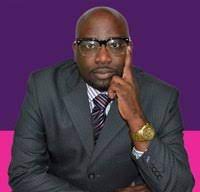
"Poor planning requires luck and circumstance, and strong planning acknowledges cause and effect."
Attributed to - Michael Harvey, Senior Partner HPC Ltd
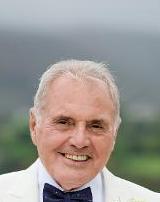
"Start where you are. Use what you have. Do what you can."
Arthur Robert Ashe Jr. (July 10, 1943 – February 6, 1993) was an American professional tennis player who won three Grand Slam singles titles.
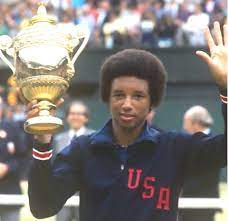
"Money often costs too much."
Attributed to; Ralph Waldo Emerson (May 25, 1803 – April 27, 1882), who went by his middle name Waldo, was an American essayist, lecturer, philosopher, abolitionist and poet who led the transcendentalist movement of the mid-19th century.
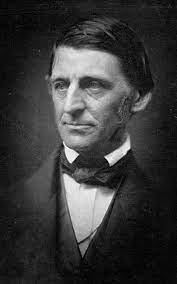
"You can't know where you are going until you know where you have been".
Attributed to, Maya Angelou (April 4 1928 - May 28 2014) was an American poet, memoirist, and civil rights, activist. She published seven autobiographies, three essays, several books of poetry and is credited with a list of plays, movies, and television shows spanning over 50 years. She received dozens of awards and more than 50 honorary degrees.
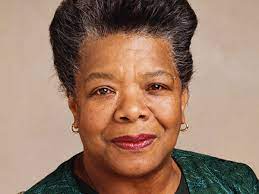
"Action is what will produce your desired results".
Attributed to; Rosette Mugidde Wamambe

"It is better to look ahead and prepare than to look back and regret."
Attributed to; Jacqueline Joyner-Kersee (born March 3, 1962) is a retired American track and field athlete, ranked among the all-time greatest athletes in the heptathlon and long jump. She won three gold, one silver, and two bronze Olympic medals in those two events at four different Olympic Games.

"Wisdom comes from life experience; life experience is the result of repeatedly taking corrective action while courageously learning from mistakes."
Attributed to; Sir Terence David John Pratchett OBE (April 28 1948 - March 12 2015). An English humorist, satirist, and author of fantasy novels, especially comical works. Pratchett's first novel, The Carpet People, was published in 1971.
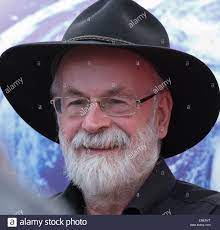
"It is sunlight in a modified form that turns all the windmills and water wheels and the machinery they drive. The energy derived from coal and petroleum (fossil sunlight) propels our steam and gas engines, locomotives and automobiles. Food is simply sunlight in cold storage.
Attributed to; John Harvey Kellogg (February 26, 1852 – December 14, 1943) was an American medical doctor, nutritionist, inventor, health activist, eugenicist, and businessman.
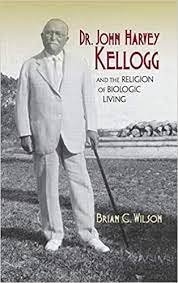
"A sailor is not defined by how many seas he has sailed than by how many storms he has overcome."
Attributed to; Matshona Dhliwayo is a Canadian based Philosopher, Entrepreneur - Born: Harare, Zimbabwe.
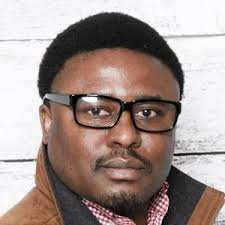
"Our Planning service is about bringing the future into the present so that we can do something about it now".
Attributed to; Michael Harvey, Senior Partner HPC Ltd

"Either you run the day, or the day runs you."
Attributed to; Emanuel James Rohn (September 17 1930 - December 5 2009), professionally known as Jim Rohn, was an American entrepreneur, author and motivational speaker.
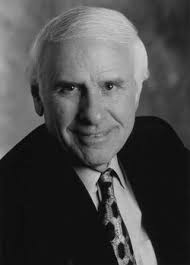
"Start by doing what's necessary, then what's possible, and suddenly you are doing the impossible."
Attributed to; St. Francis of Assisi (Born 1181/82 - Died October 3, 1226, Assisi; canonised July 16, 1228; feast day October 4, founder of the Franciscan orders of the Friars Minor the women's Order of St. Clare (the Poor Clares), and the Third lay Order. He was also a leader of the movement of evangelical poverty in the early 13th century.
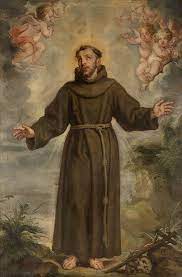
"What do we live for if not to make life less difficult for each other"
Attributed to; Mary Ann Evans (Born November 22 1819 - Died December 22 1880), known by her pen name George Eliot, was an English novelist, poet, journalist, translator and one of the leading writers of the Victorian era. She wrote seven novels: Adam Bede, The Mill on the Floss, Silas Marner, Romola, Felix Holt, the Radical, Middlemarch and Daniel Deronda.
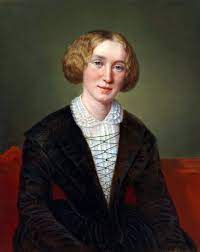
"It is only by making the past alive again, for, a person that somebody can facilitate real growth. Ignore the past, and the future does not exist."
Attributed to; Michael Harvey, Senior Partner HPC Ltd
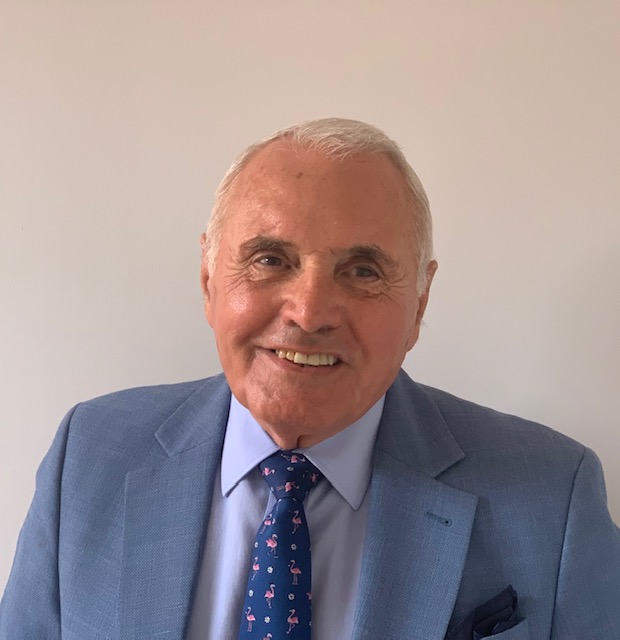
"What separates the talented individual from the successful one is a lot of hard work."
Attributed to; Stephen Edwin King, Born: September 21 1947, is an American author of horror, supernatural fiction, suspense, crime, science-fiction, and fantasy novels. His books have sold more than 350 million copies. Many adapted into films, television series, miniseries, and comic books.
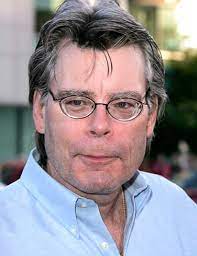
"Ordinary people think merely of spending time; great people think of using it."
Attributed to; Arthur Schopenhauer (February 22 1788 - September 21 1860) was a German philosopher. He is best known for his 1818 work The World as Will and Representation, which characterises the phenomenal world as the product of a blind noumenal will.
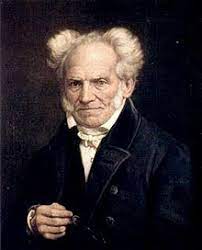
"He who has a why to live for can bear almost anyhow."
Attributed to; Friedrich Wilhelm Nietzsche (October 15 1844 - August 25 1900) was a German philosopher, cultural critic, composer, poet, writer, and philologist whose work has profoundly influenced modern intellectual history. He began his career as a classical philologist before turning to philosophy.
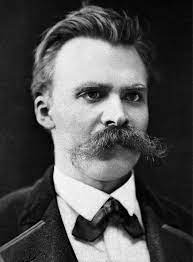
"What is joy without sorrow? What is success without failure? What is a win without a loss? What is health without illness? You have to experience each if you are to appreciate the other. There is always going to be suffering. it's how you look at your suffering, how you deal with it, that will define you."
Attributed to; Samuel Langhorne Clemens (November 30 1835- April 21 1910), known by his pen name Mark Twain, was an American writer, humorist, entrepreneur, publisher, and lecturer. Lauded as the "greatest humorist the United States has produced," William Faulkner called him "the father of American literature".
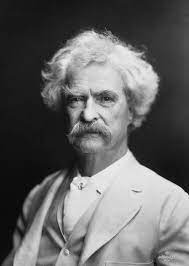
"Life is easy to chronicle but bewildering to practice".
Attributed to; Edward Morgan Forster OM CH (January 1 1879 - June 7 1970) was an English fiction writer, essayist and librettist. Many of his novels examined class difference and hypocrisy, including A Room with a View, Howards End and A Passage to India. The last brought him his most tremendous success.
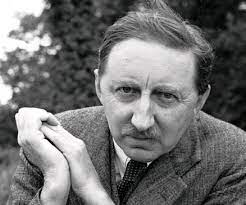
"There is no joy equal to that of being able to work for all humanity and doing what you're doing well."
Attributed to; Richard Buckminster Fuller (July 12 1895 - July 1 1983) was an American architect, systems theorist, author, designer, inventor, and futurist.
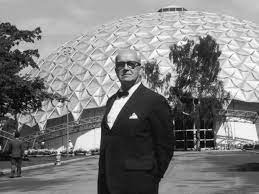
"CPM represents the central position that critical activities in a project play in the method."
Attributed to; In 1956 James E. Kelley Jr. (of Remington Rand) and Morgan R. Walker (of DuPont) began developing algorithms for project scheduling at DuPont, building on work that had been done at the company during the Manhattan Project. The program was first trialled on plant shutdowns in 1957, and they published the first paper on critical path scheduling in 1959.
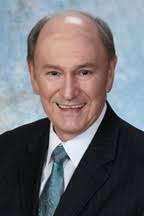
"When you do the things in the present that you can see, you are shaping the future that you are yet to see."
Attributed to; IDOWU KOYENIKAN is an "internationally acclaimed organisational consultant and author"
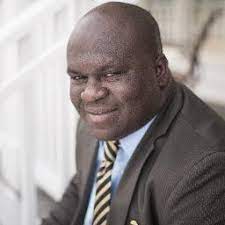
"The time to repair the roof is when the sun is shining."
Attributed to; John Fitzgerald Kennedy, often referred to by his initials JFK, was an American politician who served as the 35th president of the United States from 1961 until his assassination near the end of his third year in office. Born: May 29 1917 - Assassinated: November 22 1963, Parkland Hospital, Dallas, Texas.
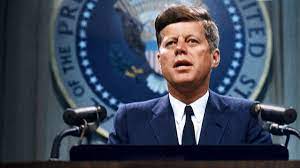
"You must have long term goals to keep you from being frustrated by short term failures."
Attributed to; Charles "Chuck" Carmin Noble (May 18 1916 - August 16 2003) was an American major general and engineer who worked on the Manhattan Project, led construction in Nuremberg after World War II, developed the early American ICBM programme
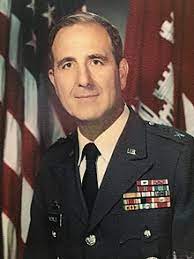
"The bitterness of poor quality remains long after the sweetness of low price has faded. "
Attributed to; Benjamin Franklin FRS FRSA FRSE (January 17 1706 - April 17 1790) was an American polymath who was active as a writer, scientist, inventor, statesman, diplomat, printer, publisher and political philosopher.
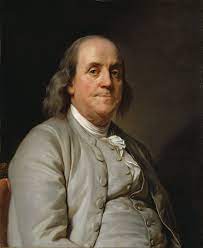
"A ship is safe in harbour, but that's not what ships are for."
Attributed to; John Graves Shedd (July 20 1850- October 22 1926) was the second president, and chair of the board, of Marshall Field & Company.
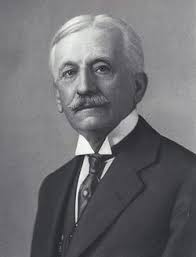
"Knowing yourself is the beginning of all wisdom."
Attributed to; Aristotle (Born: 384 BC Died: 322 BC) was a Greek philosopher and polymath during the Classical period in Ancient Greece. Aristotle was tutored by Plato, the Lyceum founder, the Peripatetic school of philosophy, and the Aristotelian tradition.

"The only true wisdom is in knowing you know nothing."
Attributed to; Socrates (Born: Alopece - Died: 399 BC) was a Greek philosopher from Athens who is credited as a founder of Western philosophy and the first moral philosopher of the Western ethical tradition of thought.

"The saddest aspect of life right now is that science gathers knowledge faster than society gathers wisdom."
Attributed to; Isaac Asimov (January 2 1920, April 6 1992) was an American writer and professor of biochemistry at Boston University. He was known for his works of science fiction and popular science.
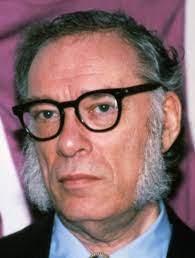
"The fool doth think he is wise, but the wise man knows himself to be a fool."
Attributed to; William Shakespeare (April 15 1564 - April 23 1616) Shakespeare was an English playwright, poet, and actor, widely regarded as the most excellent writer in the English language and the world's greatest dramatist. England's national poet and the "Bard of Avon".

"It is the mark of an educated mind to be able to entertain a thought without accepting it."
Attributed to; Aristotle (Born: 384 BC Died: 322 BC) was a Greek philosopher and polymath during the Classical period in Ancient Greece. Aristotle was tutored by Plato, the Lyceum founder, the Peripatetic school of philosophy, and the Aristotelian tradition.
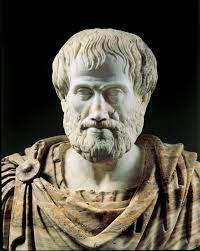
"Any fool can know. The point is to understand."
Attributed to; Albert Einstein - (March 14 1879 – April 18 1955) was a German-born theoretical physicist, widely acknowledged to be one of the greatest physicists of all time.
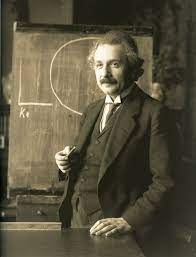
"No great mind has ever existed without a touch of madness."
Attributed to; Aristotle (Born: 384 BC Died: 322 BC) was a Greek philosopher and polymath during the Classical period in Ancient Greece. Aristotle was tutored by Plato, the Lyceum founder, the Peripatetic school of philosophy, and the Aristotelian tradition.
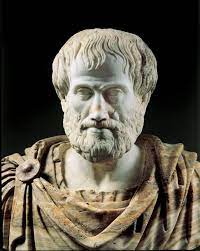
"Genius is the recovery of childhood at will."
Attributed to; Jean Nicolas Arthur Rimbaud (October 20 1854 - November 10 1891) was a French poet known for his transgressive and surreal themes and his influence on modern literature and arts, prefiguring surrealism.
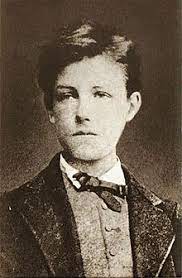
"Our greatest weakness lies in giving up. The surest way to succeed is always to try just one more time.
Attributed to; Thomas Alva Edison (February 11 1847 - October 18 1931)was an American inventor and businessman described as America's greatest inventor. He developed many devices in electric power generation, mass communication, sound recording, and motion pictures.
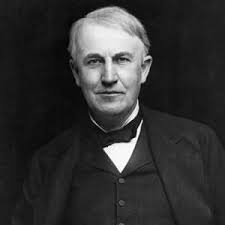
Just because something doesn't do what you planned it to do doesn't mean it's useless".
Attributed to; Thomas Alva Edison (February 11 1847 - October 18 1931)was an American inventor and businessman described as America's greatest inventor. He developed many devices in electric power generation, mass communication, sound recording, and motion pictures.

"Genius is one per cent inspiration and ninety-nine per cent perspiration".
Attributed to; Thomas Alva Edison (February 11 1847 - October 18 1931)was an American inventor and businessman described as America's greatest inventor. He developed many devices in electric power generation, mass communication, sound recording, and motion pictures.
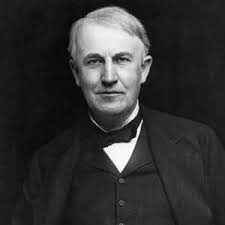
"I'm a greater believer in luck, and I find the harder I work, the more I have of it."
Attributed to; Thomas Jefferson (April 13 1743 - July 4 1826) was an American statesman, diplomat, lawyer, architect, musician, philosopher, and Founding Father who served as the third president of the United States from 1801 to 1809.
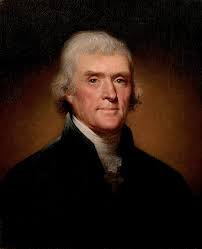
"If people knew how hard I had to work to gain my mastery, it would not seem so wonderful at all."
Attributed to; Michelangelo di Lodovico Buonarroti Simoni (March 6 1475 - February 18 1564), known simply as Michelangelo, was an Italian sculptor, painter, architect, and poet born in the High Renaissance in the Republic of Florence, who exerted an unparalleled influence on the development of Western art.
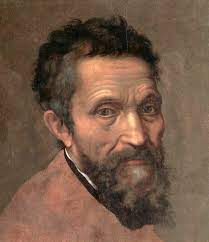
"Hard work beats talent when talent fails to work hard."
Attributed to; Kevin Wayne Durant, Born: September 29 1988, also known simply by his initials K.D., is an American professional basketball player for the Brooklyn Nets of the National Basketball Association.

"A man is but a product of his thoughts. What he thinks he becomes".
Attributed to; Mohandas Karamchand Gandhi (October 2 1869 - Assassinated: January 30 1948) was an Indian lawyer, anti-colonial nationalist and political ethicist. They employed nonviolent resistance to lead the successful campaign for India's independence from British rule and inspired movements for civil rights and freedom across the world.
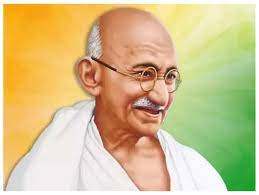
"An ounce of practice is worth a thousand words".
Attributed to; Mohandas Karamchand Gandhi (October 2 1869 - Assassinated: January 30 1948) was an Indian lawyer, anti-colonial nationalist and political ethicist. They employed nonviolent resistance to lead the successful campaign for India's independence from British rule and inspired movements for civil rights and freedom across the world.
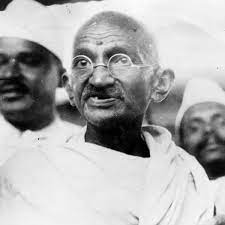
"It is no use saying 'we are doing our best.' You have got to succeed in doing what is necessary".
Attributed to; Sir Winston Leonard Spencer Churchill, KG, O.M., CH, T.D., DL, FRS, R.A. (November 30 1874 - January 24 1965) was a British statesman who served as Prime Minister of the United Kingdom from 1940 to 1945, during the Second World War, and again from 1951 to 1955.
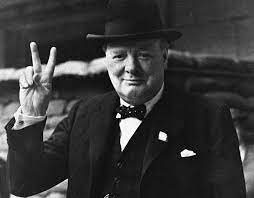
"Employ your time in improving yourself by other men's writings so that you shall come quickly by what others have laboured hard for".
Attributed to; Sir Winston Leonard Spencer Churchill, KG, O.M., CH, T.D., DL, FRS, R.A. (November 30 1874 - January 24 1965) was a British statesman who served as Prime Minister of the United Kingdom from 1940 to 1945, during the Second World War, and again from 1951 to 1955.
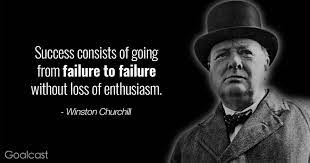
"Imagination is more important than knowledge. Knowledge is limited. Imagination encircles the world".
Attributed to; Albert Einstein - (March 14 1879 – April 18 1955) was a German-born theoretical physicist, widely acknowledged to be one of the greatest physicists of all time.
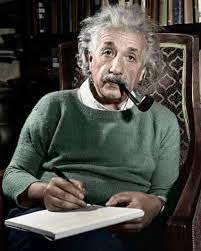
"Try not to become a man of success, but rather try to become a man of value".
Attributed to; Albert Einstein - (March 14 1879 – April 18 1955) was a German-born theoretical physicist, widely acknowledged to be one of the greatest physicists of all time.
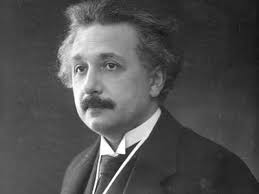
"Life is like riding a bicycle. To keep your balance, you must keep moving".
Attributed to; Albert Einstein - (March 14 1879 – April 18 1955) was a German-born theoretical physicist, widely acknowledged to be one of the greatest physicists of all time.

"Brevity is the soul of wit."
Attributed to; William Shakespeare (April 15 1564 - April 23 1616) Shakespeare was an English playwright, poet, and actor, widely regarded as the most excellent writer in the English language and the world's greatest dramatist. England's national poet and the "Bard of Avon".

"What lies behind you and what lies in front of you pales compared to what lies inside of you."
Attributed to; Ralph Waldo Emerson (May 25, 1803 – April 27, 1882), who went by his middle name Waldo, was an American essayist, lecturer, philosopher, abolitionist and poet who led the transcendentalist movement of the mid-19th century.
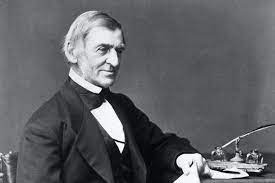
"Alone, we can do so little; together, we can do so much."
Attributed to; Helen Adams Keller (June 27 1880 - June 1 1968) was an American author, disability rights advocate, political activist and lecturer. Born in West Tuscumbia, Alabama, she lost her sight and hearing after a bout of illness at nineteen months.
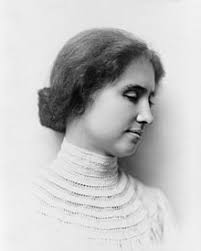
"Talent wins games, but teamwork and intelligence win championships."
Attributed to; Michael Jeffrey Jordan(February 17 1963), also known as M.J., is an American former professional basketball player and businessman. He is the principal owner and chairman of the Charlotte Hornets of the National Basketball Association and 23XI Racing in the NASCAR Cup Series.
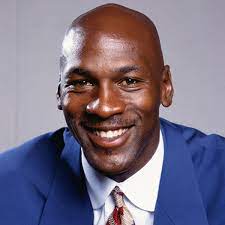
"A leader is best when people barely know he exists; when your work is complete, his aim fulfilled, they will say: we did it ourselves."
Attributed to; Lao Tzu, Chualso (Born: 571 BC), rendered as Laozi and Lao-Tze, was an ancient Chinese philosopher and writer. He is the reputed author of the Tao Te Ching, the founder of philosophical Taoism, and a deity in religious Taoism and traditional Chinese religions.
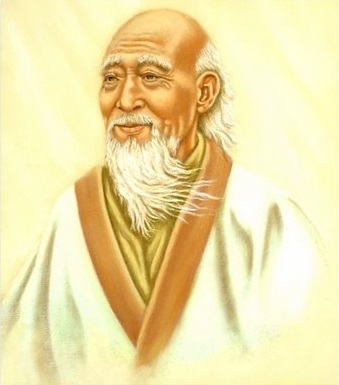
"Each day, wake up with a plan. But don't just approach your days in an unfocused void. That state of mind leaves too much room for discontent, opposition, unhappiness and hopelessness."
Attributed to;
Carlos Wallace - Author, Professor, Organiser, Philanthropist
Born in East, Texas, Professor Carlos Wallace is a 5th generation railroader and Navy veteran. A member of the American Legion, he is also a graduate of the National Labor College and Union Pacific's elite Brakeman/Conductor school. In addition, the International Organizer helped run several political campaigns, including that of Democratic Presidential candidate Barack Obama.
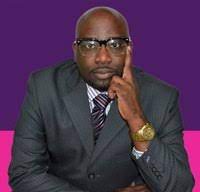
"The bitterness of poor quality remains long after the sweetness of low price is long forgotten."
Attributed to; Benjamin Franklin FRS FRSA FRSE (January 17 1706 - April 17 1790) was an American polymath who was active as a writer, scientist, inventor, statesman, diplomat, printer, publisher and political philosopher.
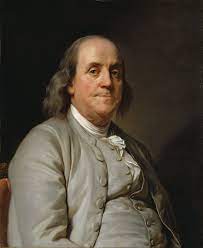
"I'm a pessimist because of intelligence, but an optimist because of will."
Attributed to; Antonio Francesco Gramsci (January 22 1891 - April 27 1937) was an Italian Marxist philosopher, journalist, linguist, writer, and politician. He wrote on philosophy, political theory, sociology, history, and linguistics.
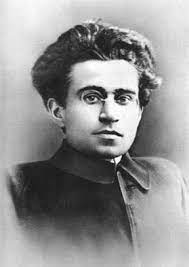
"I'm a great believer in luck, and I find the harder I work, the more I have of it."
Attributed to; Thomas Jefferson (April 13 1743 - July 4 1826) was an American statesman, diplomat, lawyer, architect, musician, philosopher, and Founding Father who served as the third president of the United States from 1801 to 1809.
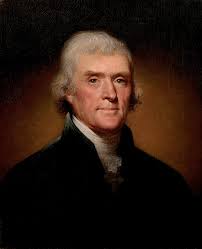
"Projects progress quickly until they become 90% complete; then remain at 90% complete forever."
Attributed to; Edwards, Butler, Hill and Russell
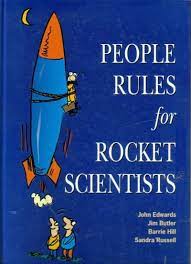
"If you can't describe what you are doing as a process, you don't know what you're doing."
Attributed to; William Edwards Deming (October 14 1900 - December 20 1993) was an American engineer, statistician, professor, author, lecturer, and management consultant.
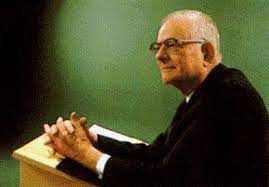
Daring ideas are like chessmen moved forward. They may be beaten, but they may start a winning game.
Attributed to; Johann Wolfgang von Goethe (August 28 1749 - March 22 1832) was a German poet, playwright. In addition, Goethe was a novelist, scientist, statesman, theatre director, and critic. His works include plays, poetry, literature and aesthetic criticism, and treatises on botany, anatomy, and colour. Goethe was the most significant German literary figure of the modern era.
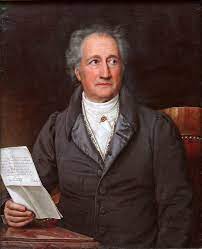
"Plans are only good intentions unless they immediately degenerate into hard work."
Attributed to; Peter Ferdinand Drucker (November 19 1909 - November 11 2005) was an Austrian-American management consultant, educator, and author, whose writings contributed to the philosophical and practical foundations of the modern business corporation.
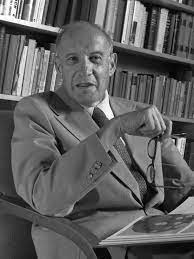
"A ship is safe in harbour, but that's not what ships are for."
Attributed to; John Graves Shedd (July 20 1850- October 22 1926) was the second president, and chair of the board, of Marshall Field & Company.
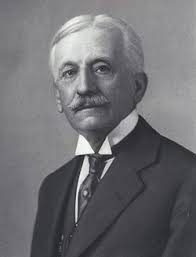
"People will walk in and walk out of your life, but the ones whose footsteps made a long-lasting impression are the ones you should never allow for walking out."
Attributed to; Michael Bassey Johnson (born April 20 1994) is a progressive author, poet, dramatist, philosopher, and nature enthusiast. Although Johnson is highly unconventional, his writings are mainly poems, comedies, puns, one-liners, anecdotes, and memoirs.

"What you do has a far greater impact than what you say."
Attributed to; Stephen Richards Covey (October 24 1932 - July 16 2012) was an American educator, author, businessman, and keynote speaker. His most popular book is The 7 Habits of Highly Effective People.
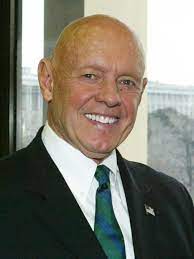
"To be humble to superiors is a duty, to equals courtesy, to inferiors nobleness.".
Attributed to; Benjamin Franklin FRS FRSA FRSE (January 17 1706 - April 17 1790) was an American polymath who was active as a writer, scientist, inventor, statesman, diplomat, printer, publisher and political philosopher.
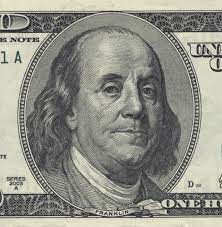
"If Opportunity doesn't Knock, Build a Door."
-Attributed to; Milton Berle (July 12 1908 - March 27 2002) was an American comedian and actor. Berle's career as an entertainer spanned over 80 years, first in silent films and on stage as a child actor, then in radio, movies and television.
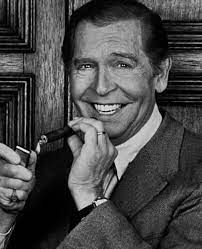
"The best way to predict the future is to invent it."
Attributed to; Alan Curtis Kay (May 17 1940) is an American computer scientist. He was elected a Fellow of the American Academy of Arts and Sciences, the National Academy of Engineering, and the Royal Society of Arts. He is best known for his pioneering work on object-oriented programming and windowing graphical user interface design.
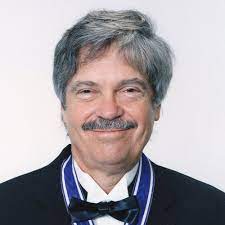
"If you want to lift yourself, lift someone else."
Attributed to; Booker Taliaferro Washington (April 5 1856 - November 14 1915) was an American educator, author, orator, and adviser to several presidents of the United States. Between 1890 and 1915, Washington was the dominant leader in the African American community and the contemporary black elite.
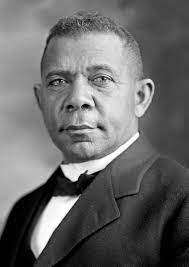
"The best way to predict the future is to invent it."
Attributed to; - Alan Kay(May 17 1940) is an American computer scientist. He was elected a Fellow of the American Academy of Arts and Sciences, the National Academy of Engineering, and the Royal Society of Arts. He is best known for his pioneering work on object-oriented programming and windowing graphical user interface design.

"We often miss opportunity because it's dressed in overalls and looks like work."
Attributed to; Thomas Alva Edison (February 11 1847 - October 18 1931)was an American inventor and businessman described as America's greatest inventor. He developed many devices in electric power generation, mass communication, sound recording, and motion pictures.
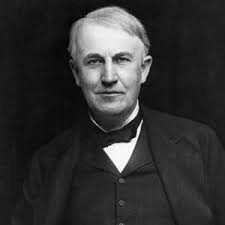
"Talent wins games, but teamwork and intelligence win championships."
Attributed to; Michael Jeffrey Jordan(February 17 1963), also known as M.J., is an American former professional basketball player and businessman. He is the principal owner and chairman of the Charlotte Hornets of the National Basketball Association and 23XI Racing in the NASCAR Cup Series.
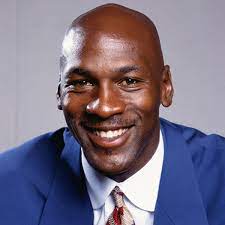
"A leader knows the way, goes the way, and shows the way."
Attributed to; John Calvin Maxwell (February 20 1947) is an American author, speaker, and pastor who has written many books focusing on leadership. Titles include The 21 Irrefutable Laws of Leadership and The 21 Indispensable Qualities of a Leader. His books have sold millions of copies, with some on the New York Times Best Seller List.

"The first responsibility of a leader is to define reality. The last is to say thank you. In between, the leader is a servant."
Attributed to; Max De Pree (October 28 1924 - August 8 2017) was an American businessman and writer. A son of D. J. De Pree, founder of Herman Miller office furniture company, he and his brother Hugh De Pree assumed the company's leadership in the early 1960s, Hugh becoming CEO and President in 1962.
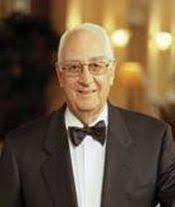
"Spread love everywhere you go. Let no one ever come to you without leaving happier."
Attributed to; Mother Mary Teresa Bojaxhiu(August 26 1910 - September 5 1997), honoured in the Catholic Church as Saint Teresa of Calcutta, was an Albanian-Indian Roman Catholic nun and missionary. She was born in Skopje, then part of the Kosovo Vilayet of the Ottoman Empire.

"When you reach the end of your rope, tie a knot in it and hang on."
Attributed to; Franklin Delano Roosevelt (January 30 1882 - April 12 1945), often referred to by his initials FDR, was an American statesman and political leader who served as the 32nd President of the United States from 1933 until he died 1945.

"Always remember that you are unique. Just like everyone else."
Attributed to; Margaret Mead (December 16 1901 - November 15 1978) was an American cultural anthropologist frequently featured as an author and speaker in the mass media during the 1960s and 1970s. She earned her bachelor's degree at Barnard College in New York City and her M.A. and PhD degrees from Columbia University.
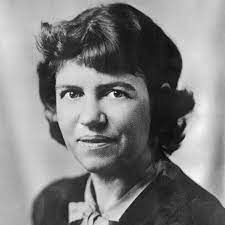
"Don't judge each day by the harvest you reap but by the seeds that you plant."
Attributed to; Robert Louis Stevenson (November 13 1850 - December 3 1894) was a Scottish novelist, essayist, poet and travel writer. He is best known for Treasure Island, Strange Case of Dr Jekyll and Mr Hyde, Kidnapped and A Child's Garden of Verses.
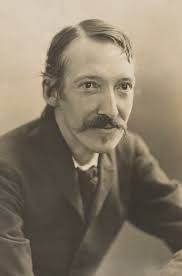
"The future belongs to those who believe in the beauty of their dreams."
Attributed to; Anna Eleanor Roosevelt (October 11 1884 - November 7 1962) was an American political figure, diplomat and activist. She served as the first lady of the United States from 1933 to 1945, during her husband President Franklin D. Roosevelt's four terms in office, making her the longest-serving first lady of the United States.
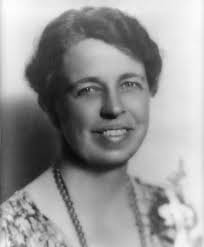
"Tell me, and I forget. Teach me, and I remember. Involve me, and I learn."
Attributed to; Benjamin Franklin FRS FRSA FRSE (January 17 1706 - April 17 1790) was an American polymath who was active as a writer, scientist, inventor, statesman, diplomat, printer, publisher and political philosopher.
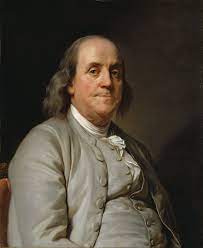
"The best and most beautiful things in the world cannot be seen or even touched — you must feel them with the heart."
Attributed to; Helen Adams Keller (June 27 1880 - June 1 1968) was an American author, disability rights advocate, political activist and lecturer. Born in West Tuscumbia, Alabama, she lost her sight and hearing after a bout of illness at nineteen months.
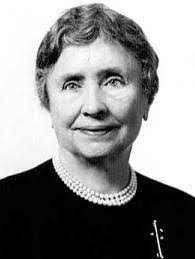
"It is during our darkest moments that we must focus to see the light."
Attributed to; Aristotle (Born: 384 BC Died: 322 BC) was a Greek philosopher and polymath during the Classical period in Ancient Greece. Aristotle was tutored by Plato, the Lyceum founder, the Peripatetic school of philosophy, and the Aristotelian tradition.
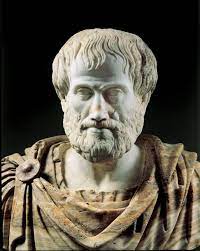
"Whoever is happy will make others happy too."
Attributed to; Annelies Marie Frank (June 12 1929 – February 1945) was a German-Dutch diarist of Jewish heritage. One of the most discussed Jewish victims of the Holocaust, she gained fame posthumously with the 1947 publication of The Diary of a Young Girl, in which she documents her life in hiding from 1942 to 1944, during the German occupation of the Netherlands in World War II. It is one of the world's best-known books and has been the basis for several plays and films.

"Do not go where the path may lead, go instead where there is no path and leave a trail."
Attributed to; Ralph Waldo Emerson (May 25, 1803 – April 27, 1882), who went by his middle name Waldo, was an American essayist, lecturer, philosopher, abolitionist and poet who led the transcendentalist movement of the mid-19th century.
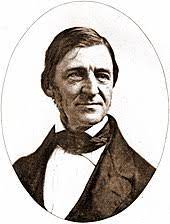
"Spread love everywhere you go. Let no one ever come to you without leaving happier."
Attributed to; Mother Mary Teresa Bojaxhiu(August 26 1910 - September 5 1997), honoured in the Catholic Church as Saint Teresa of Calcutta, was an Albanian-Indian Roman Catholic nun and missionary. She was born in Skopje, then part of the Kosovo Vilayet of the Ottoman Empire.

"When you reach the end of your rope, tie a knot in it and hang on."
Attributed to; Franklin Delano Roosevelt (January 30 1882 - April 12 1945), often referred to by his initials FDR, was an American statesman and political leader who served as the 32nd President of the United States from 1933 until he died 1945.
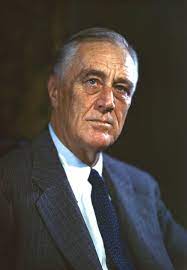
"Always remember that you are unique. Just like everyone else."
Attributed to; Margaret Mead (December 16 1901 - November 15 1978) was an American cultural anthropologist frequently featured as an author and speaker in the mass media during the 1960s and 1970s. She earned her bachelor's degree at Barnard College in New York City and her M.A. and PhD degrees from Columbia University.
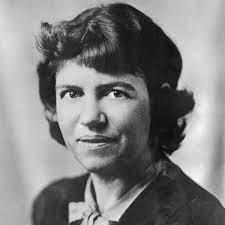
"Don't judge each day by the harvest you reap but by the seeds that you plant."
Attributed to; Robert Louis Stevenson (November 13 1850 - December 3 1894) was a Scottish novelist, essayist, poet and travel writer. He is best known for Treasure Island, Strange Case of Dr Jekyll and Mr Hyde, Kidnapped and A Child's Garden of Verses.
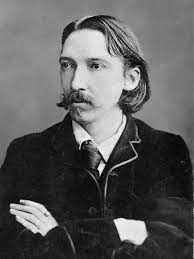
The future belongs to those who believe in the beauty of their dreams."
Attributed to; Anna Eleanor Roosevelt (October 11 1884 - November 7 1962) was an American political figure, diplomat and activist. She served as the first lady of the United States from 1933 to 1945, during her husband President Franklin D. Roosevelt's four terms in office, making her the longest-serving first lady of the United States.
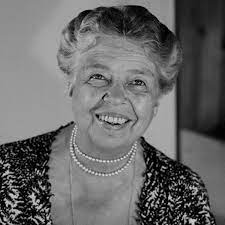
"For it is in giving that we receive."
Attributed to; St. Francis of Assisi (Born 1181/82 - Died October 3, 1226, Assisi; canonised July 16, 1228; feast day October 4, founder of the Franciscan orders of the Friars Minor the women's Order of St. Clare (the Poor Clares), and the Third lay Order. He was also a leader of the movement of evangelical poverty in the early 13th century.
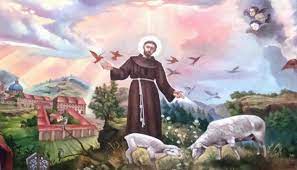
"Once a new technology rolls over you, if you're not part of the steamroller, you're part of the road."
Attributed to; Stewart Brand (December 14 1938) is an American writer, best known as the editor of the Whole Earth Catalog. He founded several organisations, including The WELL, the Global Business Network, and the Long Now Foundation. He is the author of several books, most recently Whole Earth Discipline: An Ecopragmatist Manifesto.
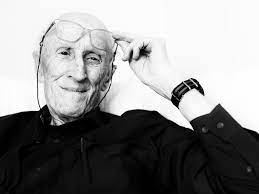
"Leadership is the capacity to translate vision into reality."
Attributed to; Warren Gamaliel Bennis (March 8 1925 - July 31 2014) was an American scholar, organisational consultant and author, widely regarded as a pioneer of the contemporary field of Leadership studies.
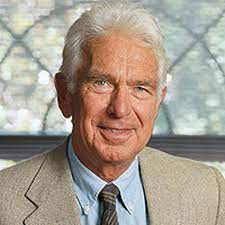
"Before you are a leader, success is all about growing yourself. When you become a leader, success is all about growing others."
Attributed to; John Francis Welch Jr. (November 19 1935 - March 1 2020) was an American business executive, chemical engineer, and writer. He was Chairman and CEO of General Electric between 1981 and 2001. When he retired from G.E., he received a severance payment of $417 million, the most significant such payment in business history.
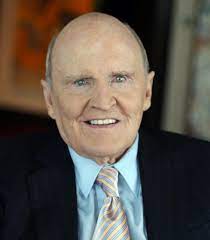
"Leadership is lifting a person's vision to high sights, raising their performance to a higher standard, and building a personality beyond its usual limitations."
Attributed to; Peter Ferdinand Drucker (November 19 1909 - November 11 2005) was an Austrian-American management consultant, educator, and author, whose writings contributed to the philosophical and practical foundations of the modern business corporation.
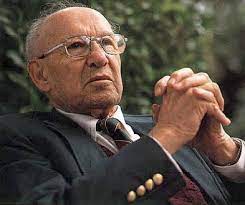
"Do not go where the path may lead, go instead where there is no path and leave a trail."
Attributed to; Ralph Waldo Emerson (May 25, 1803 – April 27, 1882), who went by his middle name Waldo, was an American essayist, lecturer, philosopher, abolitionist and poet who led the transcendentalist movement of the mid-19th century.
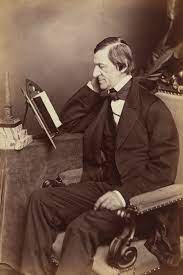
"You manage things; you lead people."
Attributed to; Grace Brewster Murray Hopper (December 9 1906 - January 1 1992) was an American computer scientist and United States Navy rear admiral. One of the first programmers of the Harvard Mark I the computer, she was a pioneer of computer programming who invented one of the first linkers.
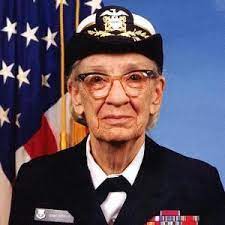
"A life spent making mistakes is not only more honourable but more useful than a life spent doing nothing."
Attributed to; George Bernard Shaw (July 26 1856 - November 2 1950), known at his insistence simply as Bernard Shaw, was an Irish playwright, critic, polemicist and political activist. His influence on Western theatre, culture and politics extended from the 1880s to his death and beyond.
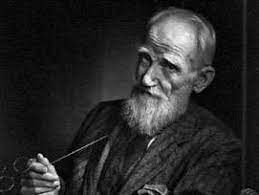
"If your actions inspire others to dream more, learn more, do more and become more, you are a leader."
Attributed to; John Quincy Adams (July 11 1767 - February 23 1848) was an American statesman, diplomat, lawyer, and diarist who served as the sixth president of the United States from 1825 to 1829. He previously served as the eighth United States Secretary of State from 1817 to 1825.
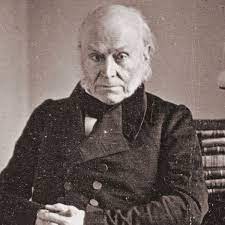
"Leaders instil in their people a hope for success and a belief in themselves. Positive leaders empower people to accomplish their goals."
Attributed to; Titus Caesar Vespasianus (December 30, 39 A.D. - September 13, 81 A.D.) was Roman emperor from 79 to 81. A member of the Flavian dynasty, Titus succeeded his father, Vespasian, upon his death. Before becoming emperor, Titus gained renown as a military commander, serving under his father in Judea during the First Jewish–Roman War.
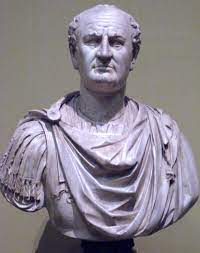
"Innovation distinguishes between a leader and a follower."
Attributed to; Steven Paul Jobs (February 24 1955 - October 5 2011) was an American business magnate, industrial designer, investor, and media proprietor.

"The measure of intelligence is the ability to change."
Attributed to; Albert Einstein - (March 14 1879 – April 18 1955) was a German-born theoretical physicist, widely acknowledged to be one of the greatest physicists of all time.
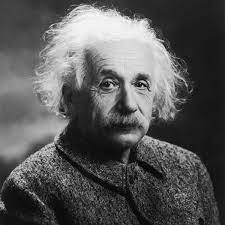
"Your assumptions are your windows on the world. Scrub them off every once in a while, or the light won't come in."
Isaac Asimov (January 2 1920, April 6 1992) was an American writer and professor of biochemistry at Boston University. He was known for his works of science fiction and popular science.
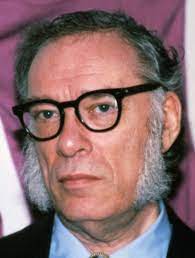
"When you work on something that only can make you £5, it does not matter how much harder you work – the most you will make is £5."
"Common sense is not so common."
Attributed to; François-Marie Arouet(November 21 1694 - May 30 1778), known by his nom de plume Voltaire, was a French Enlightenment writer, historian, and philosopher famous for his wit, his criticism of Christianity, especially the Roman Catholic Church as well as his advocacy of freedom of speech, freedom of religion, and separation of church and state.
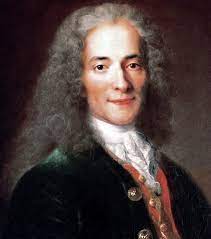
"The journey of a thousand miles begins with one step. "
Attributed to; Lao Tzu, Chualso (Born: 571 BC), rendered as Laozi and Lao-Tze, was an ancient Chinese philosopher and writer. He is the reputed author of the Tao Te Ching, the founder of philosophical Taoism, and a deity in religious Taoism and traditional Chinese religions.
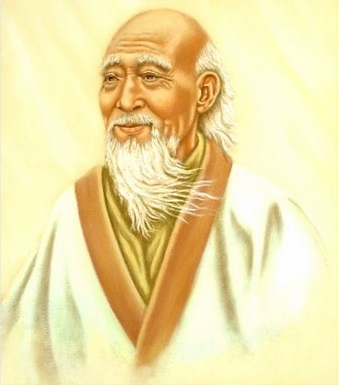
"That which does not kill us makes us stronger."
Attributed to; Friedrich Wilhelm Nietzsche (October 15 1844 - August 25 1900) was a German philosopher, cultural critic, composer, poet, writer, and philologist whose work has profoundly influenced modern intellectual history. He began his career as a classical philologist before turning to philosophy.
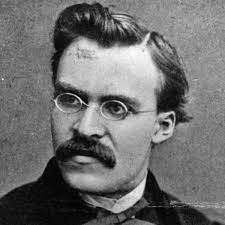
"Be mindful. Be grateful. Be positive. Be true. Be kind."
Attributed to; Roy T. Bennett is the author of The Light in the Heart. He loves sharing positive thoughts and creative insight that has helped countless people live successful and fulfilling lives. He hopes that his writing will help you become what you are capable of becoming.
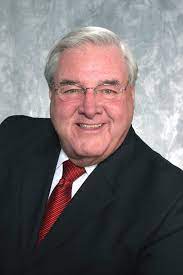
"He who is best prepared can best serve his moment of inspiration."
Attributed to; Samuel Taylor Coleridge (October 21 1772 - July 25 1834) was an English poet, literary critic, philosopher and theologian who, with his friend William Wordsworth, was a founder of the Romantic Movement in England and a member of the Lake Poets. He also shared volumes and collaborated with Charles Lamb, Robert Southey, and Charles Lloyd.
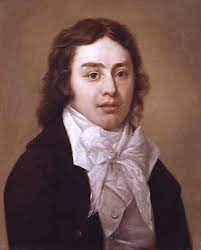
"The will to succeed is important, but what's more important is the will to prepare."
Attributed to; Robert Montgomery Knight (October 25 1940) is an American former basketball coach. Often referred to as "Bobby Knight" and nicknamed "the General", Knight won 902 NCAA Division I men's college basketball games.
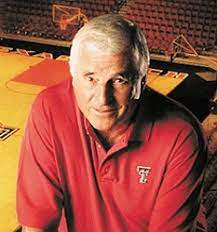
"Make it a habit to tell others how much you value them. Express your appreciation sincerely and without the expectation of anything in return".
Attributed to; Ralph Fulsom Marston (February 16 1907 - December 7 1967) was a professional football player who spent a season in the National Football League with the Boston Bulldogs in 1929.
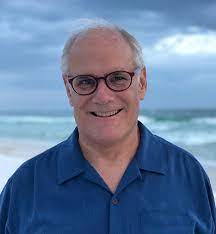
"Honestly, acknowledge those around you, and you'll soon find many others around you. Truly express gratitude for life, and you'll find that you have more of it. The shared understanding pool is like a shared bank account of the group wealth in an entire group."
Attributed to; Michael Harvey, Senior Partner HPC Ltd
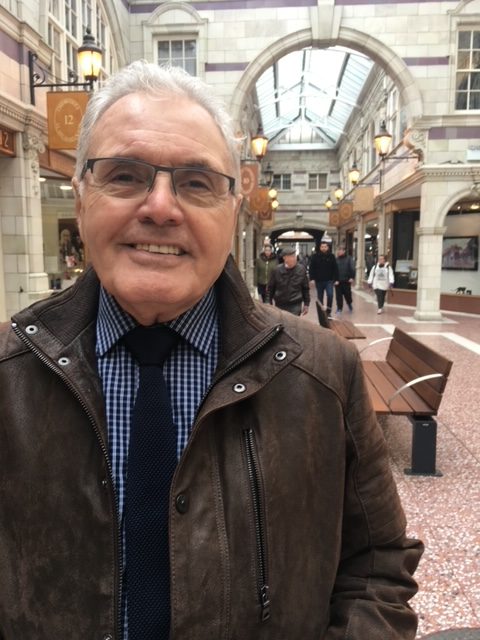
"Our most challenging times often lead to the most significant moments in our lives. Yet, we have to keep going. Difficult situations build strong people in the end."
Attributed to; Michael Harvey, Senior Partner HPC Ltd

"You never change things by fighting the existing reality. To change something, build a new model that makes the current model obsolete."
Attributed to; Michael Harvey, Senior Partner HPC Ltd

"Efficiency is doing things right; effectiveness is doing the right things. "
Attributed to; Peter Ferdinand Drucker (November 19 1909 - November 11 2005) was an Austrian-American management consultant, educator, and author, whose writings contributed to the philosophical and practical foundations of the modern business corporation.
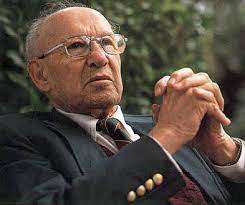
"Just pay attention, and people will reveal who they are."
Attributed to; Millie Harvey, Secretary HPC Ltd
"The measure of intelligence is the ability to change."
Attributed to; Albert Einstein - (March 14 1879 – April 18 1955) was a German-born theoretical physicist, widely acknowledged to be one of the greatest physicists of all time.
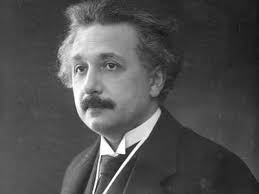
"Learn from yesterday, live for today, hope for tomorrow. The important thing is not to stop questioning".
Attributed to; Albert Einstein - (March 14 1879 – April 18 1955) was a German-born theoretical physicist, widely acknowledged to be one of the greatest physicists of all time.
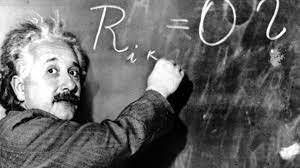
"Good people do not need laws to tell them to act responsibly, while bad people will find a way around the rules. "
Attributed to; Plato - During the Classical period in Ancient Greece, Plato was an Athenian philosopher, founder of the Platonist school of thought and the Academy, the first institution of higher learning in the Western world.
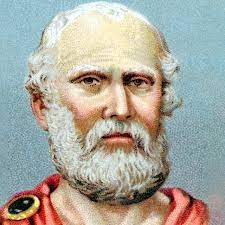
"The first rule of any technology used in a business is that automation applied to an efficient operation will magnify the efficiency. The second is that automation applied to an inefficient operation will magnify the inefficiency."
Attributed to; William Henry Gates III (October 28 1955) is an American business magnate, software developer, investor, author, and philanthropist. He is a co-founder of Microsoft, along with his late childhood friend Paul Allen.
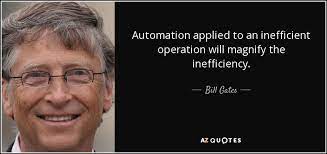
"It's not the employer who pays the wages. Employers only handle the money. It's the customer who pays the wages."
Attributed to; Henry Ford (July 30 1863 - April 7 1947) was an American industrialist, business magnate, founder of the Ford Motor Company, and chief developer of the assembly line technique of mass production.
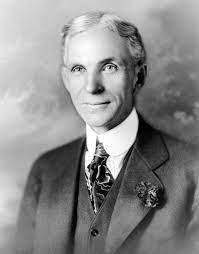
"I'm a great believer in luck, and I find the harder I work, the more I have of it."
Attributed to; Thomas Jefferson (April 13 1743 - July 4 1826) was an American statesman, diplomat, lawyer, architect, musician, philosopher, and Founding Father who served as the third president of the United States from 1801 to 1809.
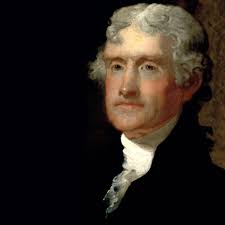
"I sincerely believe that banking establishments are more dangerous than standing armies and that the principle of spending money to be paid by posterity, under the name of funding, is but swindling futurity on a large scale."
Attributed to; Thomas Jefferson (April 13 1743 - July 4 1826) was an American statesman, diplomat, lawyer, architect, musician, philosopher, and Founding Father who served as the third president of the United States from 1801 to 1809.
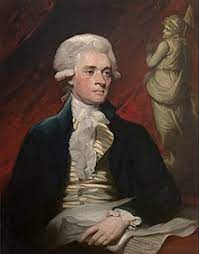
"Our greatest weakness lies in giving up. The surest way to succeed is always to try just one more time".
Attributed to; Thomas Alva Edison (February 11 1847 - October 18 1931)was an American inventor and businessman described as America's greatest inventor. He developed many devices in electric power generation, mass communication, sound recording, and motion pictures.

"The unexpected can come at any time in our lives. Life sets us a challenge to test our resolution and readiness to change; something has happened in our lives at such a moment."
Attributed to; Michael Harvey, Senior Partner HPC Ltd

"Life is either a daring adventure or nothing at all."
Attributed to; Helen Adams Keller (June 27 1880 - June 1 1968) was an American author, disability rights advocate, political activist and lecturer. Born in West Tuscumbia, Alabama, she lost her sight and hearing after a bout of illness at nineteen months.
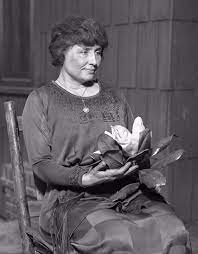
"I have no special talents. I am only passionately curious."
Attributed to; Albert Einstein - (March 14 1879 – April 18 1955) was a German-born theoretical physicist, widely acknowledged to be one of the greatest physicists of all time.
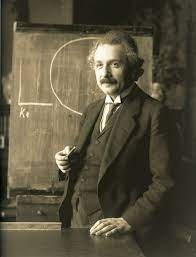
"Our most challenging times often lead to the most significant moments in our lives. Yet, we have to keep going. Difficult situations build strong people in the end."
Attributed to; Michael Harvey, Senior Partner HPC Ltd
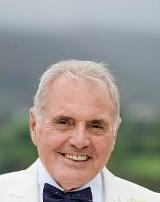
"There are no shortcuts to any place worth going."
Attributed to; Beverly Sills (May 25 1929 - July 2 2007) was an American operatic soprano whose peak career was between the 1950s and 1970s. Although she sang a repertoire from Handel and Mozart to Puccini, Massenet and Verdi, she was especially renowned for her coloratura soprano roles in live opera and recordings.

"Measurement is the first step that leads to control and eventually to improvement. If you can't measure something, you can't understand it. If you can't understand it, you can't control it. If you can't control it, you can't improve it."
Attributed to; H. James Harrington Born: January 16 1929 (age 92 years), Johnson City, is a government-registered Quality Engineer, a Certified Quality and Reliability Engineer by the American Society for Quality Control, and a Permanent Certified Professional Manager by the Institute of Certified Professional Managers.
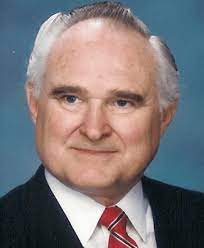
"Power is gained by sharing knowledge, not keeping it to yourself".
Attributed to; Michael Harvey, Senior Partner HPC Ltd
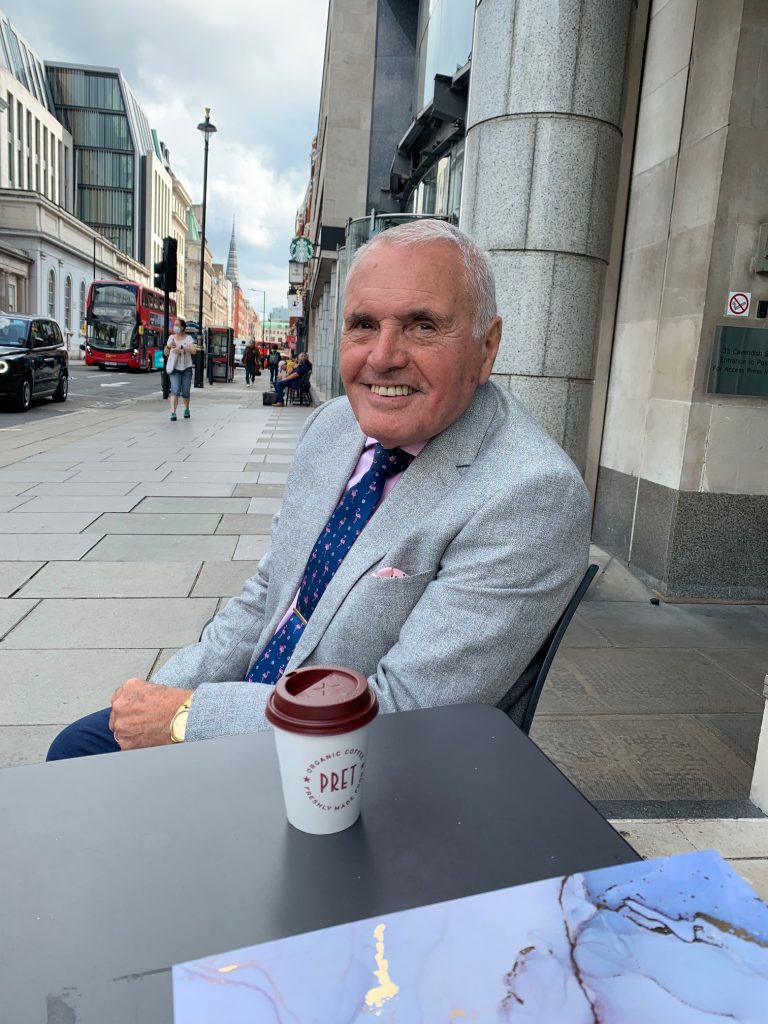
"No one saves us but ourselves. No one can, and no one may. We must walk the path."
Attributed to; Gautama Buddha, popularly known as the Buddha or Lord Buddha, was a Śramaṇa who lived in ancient India.
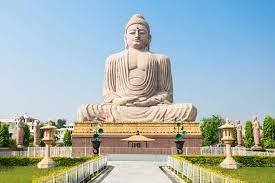
"Just as a snake sheds its skin, we must shed our past over and over again."
Attributed to; Gautama Buddha, popularly known as the Buddha or Lord Buddha, was a Śramaṇa who lived in ancient India.
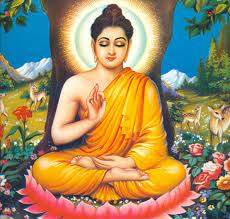
"Where you stumble and fall, there you will find gold."
Attributed to; Joseph John Campbell (March 26 1904 - October 30 1987) was an American professor of literature at Sarah Lawrence College who worked in comparative mythology and comparative religion. His work covers many aspects of the human experience.
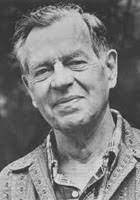
"At times, our light goes out and is rekindled by a spark from another person. Each of us has cause to think with deep gratitude of those who have lighted the flame within us."
Attributed to; Ludwig Philipp Albert Schweitzer OM(January 14 1875 - September 4 1965) was an Alsatian polymath. He was a theologian, organist, musicologist, writer, humanitarian, philosopher, and physician.
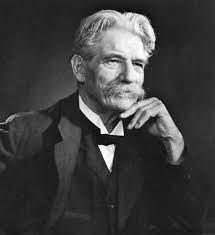
"Learn from yesterday, live for today, hope for tomorrow. The important thing is not to stop questioning".
Attributed to; Albert Einstein - (March 14 1879 – April 18 1955) was a German-born theoretical physicist, widely acknowledged to be one of the greatest physicists of all time.

When your values are clear to you, making decisions becomes easier.
Attributed to; Roy Edward Disney KCSG (January 10 1930 - December 16 2009) was a longtime senior executive for the Walt Disney Company founded by his father, Roy O. Disney, and his uncle, Walt Disney. At his death, he held more than 16 million shares and served as a consultant for the company as director emeritus for the board of directors.

"Objectives are not commands; they are commitments".
Attributed to; Peter Ferdinand Drucker (November 19 1909 - November 11 2005) was an Austrian-American management consultant, educator, and author, whose writings contributed to the philosophical and practical foundations of the modern business corporation.
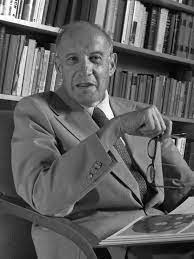
To one who has faith, no explanation is necessary. To one without faith, no explanation is possible.
Attributed to; Thomas Aquinas (1225 - March 7 1274) was an Italian Dominican friar, philosopher, Catholic priest, and Doctor of the Church. An immensely influential philosopher, theologian, and jurist in the tradition of scholasticism, he is also known within the latter as Doctor Angelicus, the Doctor Communis, and the Doctor Universalis.
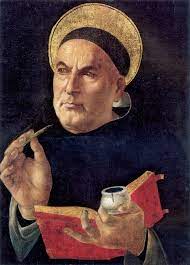
"In history, a great volume is unrolled for our instruction, drawing the materials of future wisdom from the past errors and infirmities of humankind."
Attributed to; Edmund Burke (January 12 1729 - July 9 1797) was an Irish statesman, economist, and philosopher. Burke moved to London in 1750 to join the Whig party from 1766 to1794. Although Burke was born in Dublin, he served as a member of parliament in the House of Commons.
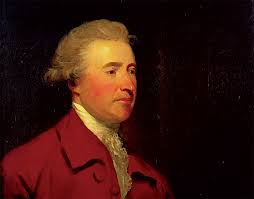
"To be ignorant of the past is to be forever a child".
Attributed to; Cicero, 106-43 BC, Roman orator & statesman

Our ignorance of history causes us to slander our times.
Attributed to; Gustave Flaubert (December 12 1821 – May 8 1880) was a French novelist. Highly influential, he has been considered the leading exponent of literary realism in his country. According to the literary theorist Kornelije Kvas, "in Flaubert, realism strives for formal perfection, so the presentation of reality tends to be neutral, emphasising the values and importance of style as an objective method of presenting reality". He is known primarily for his debut novel Madame Bovary (1857), Correspondence, and scrupulous devotion to style and aesthetics. The celebrated short story writer Guy de Maupassant was a protégé of Flaubert.
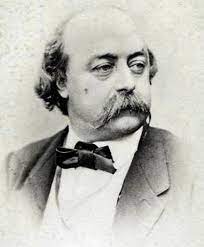
"If history were taught in the form of stories, it would never be forgotten".
Attributed to; Joseph Rudyard Kipling (December 30 1865 - January 18 1936) was an English journalist, short-story writer, poet, and novelist. He was born in India, which inspired much of his work. Kipling's works of fiction include The Jungle Book, Kim, and many short stories, including "The Man Who Would Be King".
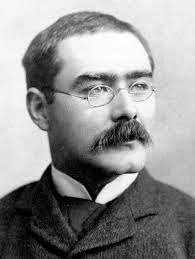
"Getting its history wrong is part of being a nation".
Joseph Ernest Renan (February 27 1823 - October 2 1892) was a French Orientalist and Semitic scholar, expert of Semitic languages and civilisations, historian of religion, philologist, philosopher, biblical scholar and critic., 1823-1892, French philosopher & historian
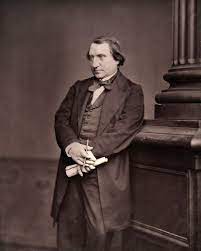
That men do not learn very much from the lessons of history is the most important of all the lessons that history has to teach.
Attributed to; Aldοus Huxley(1894-1963) British writer with an acute intelligence whose works are notable for their wit and pessimistic satire. He remains best known for the novel Brave New World (1932), a model for much dystopian science fiction that followed.
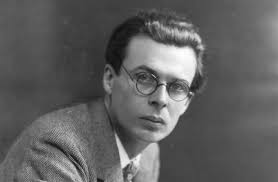
"Happiness and freedom begin with one principle. Some things are within your control and some are not."
Attributed to; Epictetus – Stoic philosopher. Lived from 55-155 AD.

"The unexamined life is not worth living."
Attributed to; Socrates (Born: Alopece - Died: 399 BC) was a Greek philosopher from Athens who is credited as a founder of Western philosophy and the first moral philosopher of the Western ethical tradition of thought.
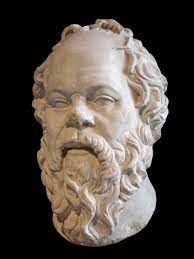
"No man ever steps in the same river twice, for it's not the same river and he's not the same man."
Attributed to; Heraclitus, lived circa 500 BCE in Ephesus, modern-day Turkey.
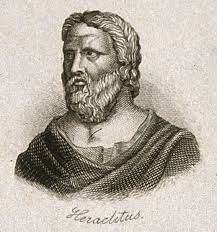
"The most effective way to destroy people is to deny and obliterate their understanding of their history."
Attributed to;
Attributed to; Eric Arthur Blair, known by his pen name George Orwell, (June 25 1903 - January 21 1950) was an English novelist, essayist, journalist and critic. His work is characterised by lucid prose, biting social criticism, opposition to totalitarianism, and outspoken support of democratic socialism.

Of the twenty-two civilisations that have appeared in history, nineteen of them collapsed when they reached the moral state the United States is in now.
Attributed to; Arnold Joseph Toynbee CH FBA( April 14 1889 - October 22 1975) was an English historian, a philosopher of history, author of numerous books and a research professor of international history at the London School of Economics and King's College London. From 1918 to 1950, Toynbee was considered a leading specialist in international affairs.
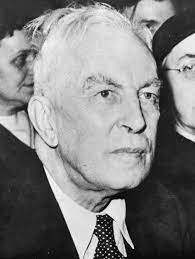
Everyone who wants to know what will happen ought to examine what has happened: everything in this world in any epoch has its replicas in antiquity.
Attributed to ; Niccolò di Bernardo dei Machiavelli (May 3 1469 - June 21 1527) was an Italian diplomat, philosopher, and historian who lived during the Renaissance. He is best known for his political treatise The Prince, written about 1513. He has often been called the father of modern political philosophy and political science.
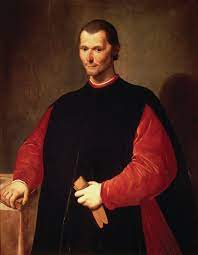
"Only the dead have seen the end of war."
Attributed to; Plato - During the Classical period in Ancient Greece, Plato was an Athenian philosopher, founder of the Platonist school of thought and the Academy, the first institution of higher learning in the Western world.

"Success depends upon previous preparation, and without such preparation, there is sure to be a failure".
Attributed to; Confucius (September 28, 551- April 11, 479 BC) was a Chinese philosopher and politician of the Spring and Autumn period who was traditionally considered the paragon of Chinese sages.

Stone Age. Bronze Age. Iron Age. We define entire epics of humanity by the technology they use.
Attributed to; Wilmot Reed Hastings Jr. (October 8 1960) is an American businessman. He is the co-founder, chairman, and co-chief executive officer of Netflix and sits on several boards and non-profit organisations. A former member of the California State Board of Education, Hastings advocates education reform through charter schools.
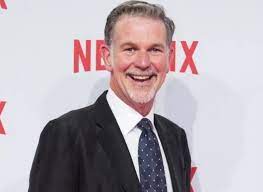
All history is incomprehensible without Christ.
Joseph Ernest Renan (February 27 1823- Died: October 2 1892) was a French Orientalist and Semitic scholar, expert of Semitic languages and civilisations, historian of religion, philologist, philosopher, biblical scholar and critic.
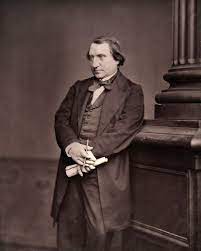
"Those who seek to please everybody please nobody."
Attributed to; Aesop (c. 620–564 BC) was a Greek fabulist and storyteller credited with several fables now collectively known as Aesop's Fables. Although his existence remains unclear, and no writings by him survive. Aesop is credited to him in a storytelling tradition that continues today. Anthropomorphic animal characters characterise many of the stories associated with him. The Tortoise and the Hare is the one that everyone knows!
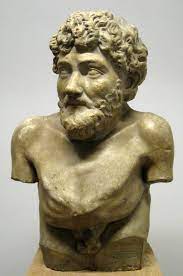
“Those who do not move, do not notice their chains.”
Attributed to: Rosa Luxemburg Born: March 5 1871-Died: January 15 1919, was a Polish Marxist economist, anti-war activist, philosopher and revolutionary socialist. Successively, she was a member of the Social Democracy of the Kingdom of Poland and Lithuania, the Social Democratic Party of Germany, the Independent Social Democratic Party and the Communist Party of Germany.
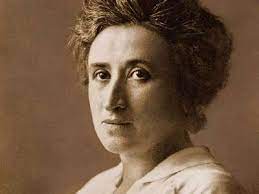
“A person who has been through bitter experiences and travelled far enjoys even his sufferings after a time.”
Attributed to: Homer (Born: 750 BC Ionia Died Ios, Greece was an ancient Greek author and epic poet. He is the reputed author of the Iliad and the Odyssey, the two epic poems that are the foundational works of ancient Greek literature—regarded as one of the greatest and most influential writers of all time.
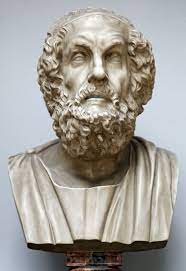
What is history but the story of how politicians have squandered the blood and treasure of the human race?
Attributed to: Thomas Sowell (Born: 30 June 1930) is an American economist, social theorist, and senior fellow at Stanford University's Hoover Institution. Born in North Carolina, Sowell grew up in Harlem, New York.
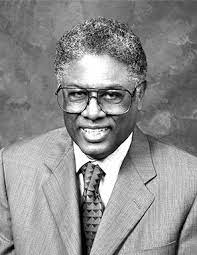
Egypt is not a country we live in but a country that lives within us.
Attributed to: Pope Shenouda III (Born: August 3 1923-Died: March 17 2012) was the 117th Pope of Alexandria and Patriarch of the See of St. Mark. His papacy lasted 40 years, four months, and four days from November 14 1971, until his repose.
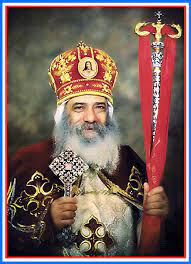
When we look back at the Mayans or ancient Egypt, we look at their art.
Attributed to; Robert Wilson(Born: October 4 1941) is an American experimental theatre stage director and playwright who has been described by The New York Times as "[America]'s – or even the world's – foremost vanguard 'theatre artist.'" He has also worked as a choreographer, performer, painter, sculptor, video artist, and sound and lighting designer.
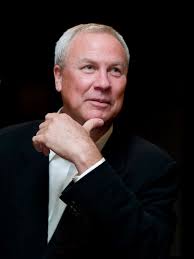
There is no honest man — not one — that can resist the attraction of gold! – Aristophanes
Attributed to; Aristophanes, son of Philippus, of the deme Kydathenaion, was a comic playwright or comedy-writer of ancient Athens and a poet of Old Attic Comedy. Eleven of his forty plays survive virtually complete.
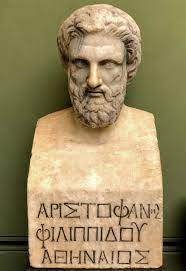
"Supreme excellence consists of breaking the enemy's resistance without fighting."
Attributed to; Sun Tzu was a Chinese general, military strategist, writer, and philosopher who lived in the Eastern Zhou period of ancient China. Sun Tzu is credited as the author of The Art of War, an influential work of military strategy that has affected both Western and East Asian philosophy and military thinking.
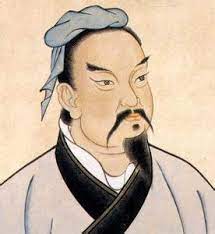
"Anytime you find someone more successful than you are, especially when you're both engaged in the same business - you know they're doing something that you aren't."
Attributed to; Malcolm X (Born: May 19 1925 - Assassinated: February 21 1965) was an American Muslim minister and human rights activist who was a prominent figure during the civil rights movement. A spokesman for the Nation of Islam until 1964, he was a vocal advocate for Black empowerment and the promotion of Islam within the Black community.
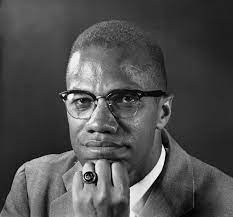
The essence of all religions is one. Only their approaches are different.
Attributed to; Mohandas Karamchand Gandhi (October 2 1869 - Assassinated: January 30 1948) was an Indian lawyer, anti-colonial nationalist and political ethicist. They employed nonviolent resistance to lead the successful campaign for India's independence from British rule and inspired movements for civil rights and freedom across the world.
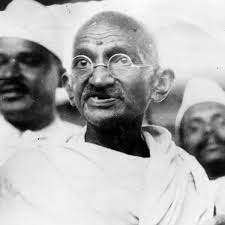
"There will always be poor people in the land. Therefore I command you to be openhanded toward your fellow Israelites who are poor and needy in your land."
Attributed to; The Book of Deuteronomy is the fifth book of the Torah, called Devarim, "the words [of Moses]", and the fifth book of the Christian Old Testament, where it is also known as the Fifth Book of Moses.
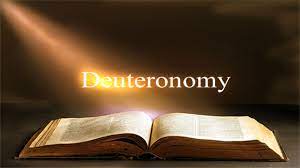
“Wait for that wisest of all counsellors, Time.”
Attributed to; Pericles (Born; Athens - Died: 429 BC, Athens) was a Greek statesman and general during the Golden Age of Athens. He was prominent and influential in Athenian politics, particularly between the Greco-Persian Wars and the Peloponnesian War, and was acclaimed by Thucydides, a contemporary historian, as "the first citizen of Athens".

“Homo sapiens have explored many ages: the Stone Age, the Bronze Age, the Iron Age and, as of late, the Industrial Age, of which we have only tried for a couple of hundred years. Before we seemingly dive headfirst into a Digital, Automated or Artificial Age, we are in desperate need of an Age of Reflection.”
Attributed to; Freequill, an Activist and writer who goes by the alias FREEQUILL and chooses to remain anonymous. "One person could change the whole world for the better, as long as they don't give a damn who gets the credit."

If like me, you're interested in history, Egypt is a place of wonders. It's the land of many civilisations, including Greek, Roman, Christian, and Muslim.
Attributed to; Michael Portillo (Born: May 26 1953) is a British journalist, broadcaster and former politician. His broadcast series include railway documentaries such as Great British Railway Journeys and Great Continental Railway Journeys.
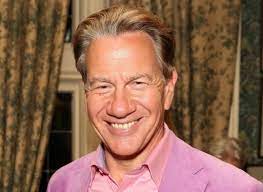
“Somebody should have warned the Trojans. Beware of gifts bearing Greeks.”
Attributed to; David Gerrold (Born: January 24 1944) is an American science fiction screenwriter and novelist. He wrote the script for the original Star Trek episode "The Trouble with Tribbles", created the Sleestak race on the TV series
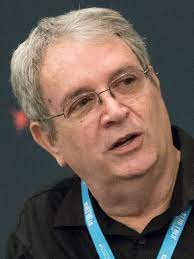
“Hateful to me as the gates of Hades is that man who hides one thing in his heart and speaks another.”
Attributed to; Homer (Born: 750 BC Ionia Died Ios, Greece was an ancient Greek author and epic poet. He is the reputed author of the Iliad and the Odyssey, the two epic poems that are the foundational works of ancient Greek literature—regarded as one of the greatest and most influential writers of all time.
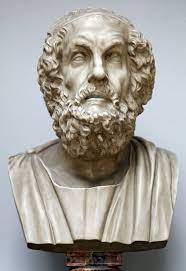
“We have gold because we cannot trust governments.”
Attributed to; Herbert Clark Hoover( Born: August 10 1874 - Died: October 20 1964) was an American politician and engineer who served as the 31st president of the United States from 1929 to 1933 and a member of the Republican Party, holding office during the onset of the Great Depression.
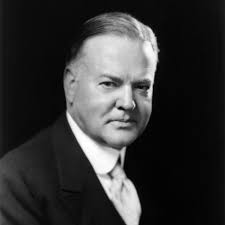
“He who conquers himself is the mightiest warrior.”
Attributed to; Confucius (September 28, 551- April 11, 479 BC) was a Chinese philosopher and politician of the Spring and Autumn period who was traditionally considered the paragon of Chinese sages.
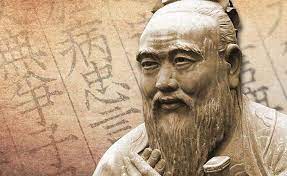
He who overcomes others is strong; he who overcomes himself is mighty.
Attributed to; Lao Tzu, Chualso (Born: 571 BC), rendered as Laozi and Lao-Tze, was an ancient Chinese philosopher and writer. He is the reputed author of the Tao Te Ching, the founder of philosophical Taoism, and a deity in religious Taoism and traditional Chinese religions.
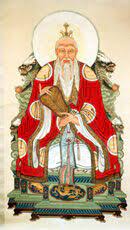
Strength is not gained overnight; it is cultivated over time.
Attributed to; King David described in the Hebrew Bible as a king of the United Monarchy of Israel and Judah. In the Books of Samuel, David is a young shepherd who gains fame first as a musician and later by killing the giant Goliath, a champion of the Philistines in southern Canaan.
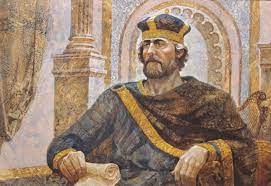
“They worshipped courage, those early Polynesians. The Spirit which had urged them across the Pacific in their sailing canoes, before the dawn of recorded history still sang its song of danger in their blood.”
Attributed to; Armstrong Wells Sperry (Born: November 7 1897 - Died: April 26 1976) was an American writer and illustrator of children's literature. His books include historical fiction and biography, often set on sailing ships, and stories of Polynesia, Asia and indigenous American cultures. He is best known for his 1941 Newbery Medal-winning book Call It Courage.
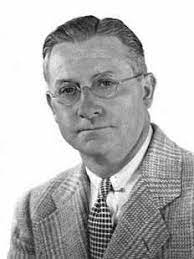
THROUGH THE AGES 5500 B.C - 2021 A. D.
There's a reason ancient philosophy fascinates us thousands of years later: Messages from the earliest recorded history still ring true. Aristotle offered advice on avoiding greed, Socrates knew how to live a meaningful life, and Confucius understood the difference between satisfaction and achievement.
LIFE AS WE KNOW IT? THROUGH THE AGES - PART 1
5500 BC to 2750 BC
During the Neolithic Age, the Cucuteni-Trypillia culture existed in the present-day south-eastern European nans of Moldova, Romania, and Ukraine.
From approximately 5500 BC to 2750 BC, left behind thousands of settlement ruins containing a wealth of archaeological artefacts attesting to their cultural and technological characteristics.
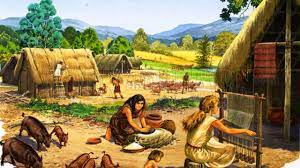
THROUGH THE AGES – PART 2
5500 BC to 2750 BC
The 5th millennium B.C. saw the spread of agriculture from Western Asia throughout Southern and Central Europe. Urban cultures in Mesopotamia and Anatolia flourished, developing the wheel. Copper ornaments became more common, marking the beginning of the Chalcolithic. Animal husbandry spread throughout Eurasia, reaching China. The world population grew slightly throughout the millennium, possibly from 5 to 7 million people. There was no evidence of battles/wars during the period 5500 BC to 2750 BC.
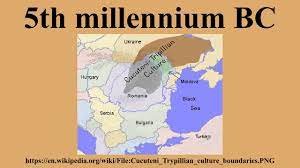
THROUGH THE AGES-FIFTH MILLENNIA BC - PART 3
5000–4500 BC
Għar Dalam is a prehistorically cul de sac located in the outskirts of Birżebbuġa, Malta containing the bone remains of stranded animals and subsequently became extinct in Malta at the end of the Ice age.
Neolithic farmers inhabited Ghar Dalam in Malta, possibly immigrant farmers from the Agrigento region of Sicily.

THROUGH THE AGES-FIFTH MILLENNIA BC – PART 4
4,500 and 2,000 BC.
The Neolithic Period or New Stone Age was a period in the development of human technology, beginning about 10,200 BC, according to the ASPRO chronology, in some parts of the Middle East, and later in other parts of the world and ending between 4,500 and 2,000 BC.
Development of the wheel takes place in Mesopotamia and India.
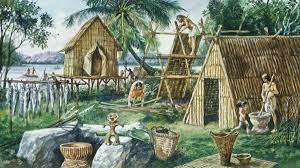
THROUGH THE AGES-FIFTH MILLENNIA BC – PART 5
5000-2000 B.C.
Traditionally considered the last part of the Stone Age, the Neolithic followed the terminal Holocene period and commenced farming, which produced the "Neolithic Revolution". It ended when metal tools became widespread (in the Copper Age or Bronze Age; or, in some geographical regions, in the Iron Age). The Neolithic is a progression of behavioural and cultural characteristics and changes, including wild and domestic crops and domesticated animals.
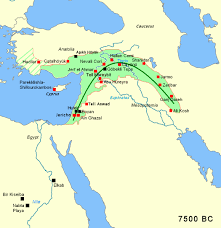
THROUGH THE AGES-FIFTH MILLENNIA BC – PART 6
4900-4600 B.C.
Arrangements of circular ditches built in Central Europe
The Goseck circle is a Neolithic structure constructed ca. 4900 BC. Goseck is part of Saxony-Anhalt, Germany. It may be the oldest and best known of the Circular Enclosures associated with the Central European Neolithic.
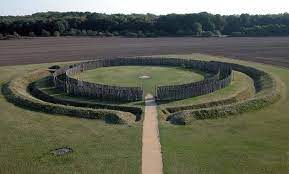
THROUGH THE AGES-FIFTH MILLENNIA BC PART 7
4350 B.C.
Kikai Caldera forms in a massive VEI7 supervolcano eruption.
A supervolcano can produce a volcanic eruption with an ejecta volume greater than 1,000 km3 (240 cu mi)—thousands of times larger than typical volcanic eruptions. Supervolcanoes can occur when magma in the mantle rises into the crust from a hotspot but cannot break through the crust, and pressure builds in a large and growing magma pool until the crust cannot contain the pressure (this is the case for the Yellowstone caldera).

THROUGH THE AGES-FIFTH MILLENNIA BC – PART 8
4300 B.C.
First Funnelbeaker Culture appeared in north and east Germany it was an archaeological culture.
The Funnelbeaker culture, in short TRB or TBK, was an archaeological culture in north-central Europe. It developed as a technological merger of local neolithic and mesolithic techno-complexes between the lower Elbe and middle Vistula rivers.

THROUGH THE AGES-FIFTH MILLENNIA BC – PART 9
4100–3500 BC
A new wave of immigration to Malta from Sicily leads to the Żebbuġ and Mġarr phases and the Ggantija phase of temple builders.
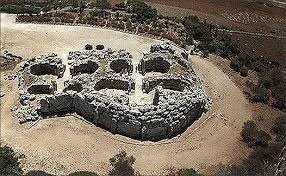
THROUGH THE AGES-FIFTH MILLENNIA BC – PART 10
4200 B.C.
4200 BC: Date of Mesolithic examples of Naalebinding found in Denmark/Sweden, marking the spread of technology to Northern Europe.
The Mesolithic is the Old World archaeological period between the Upper Paleolithic and the Neolithic. Epipaleolithic is often used synonymously, especially outside northern Europe and the corresponding period in the Levant and Caucasus.

THROUGH THE AGES-FOURTH MILLENNIA BC – PART 11
The 4th millennium B.C. saw significant changes in human culture. It marked the beginning of the Bronze Age and the invention of writing, which played an essential role in starting recorded history.
The city-states of Sumer and the kingdom of Egypt were established and grew to prominence. Agriculture spread widely across Eurasia. As a result, the world population in the course of the millennium doubled, approximately 7 to 14 million people.
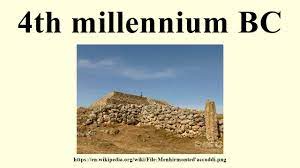
THROUGH THE AGES-FOURTH MILLENNIA BC – PART 12
4000 BC
Inhabitants of Mesoamerica cultivate maise (corn) while Peruvian natives cultivate beans and squash.
Mesoamerica is a cultural region in the Americas, extending approximately from central Mexico to Belize, Guatemala, El Salvador, Honduras, Nicaragua, and northern Costa Rica.

THROUGH THE AGES-FOURTH MILLENNIA BC – PART 13
3650BC-3000BC
Minoan culture appeared on Crete.
The Minoan civilisation was a Bronze Age Aegean civilisation on the island of Crete and the other Aegean Islands, whose earliest beginnings were from c. 3500 BC, with the complex urban civilisation beginning around 2000 B.C., and then declining from c. 1450 BC until it ended around 1100 BC, during the early Greek Dark Ages. Humans first dwelled on the island of Crete as early as 128,000 BC.
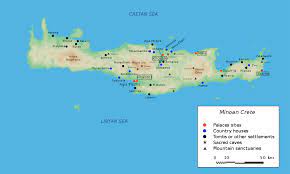
THROUGH THE AGES-FOURTH MILLENNIA BC – PART 14
3001 BC 4000 BC
A culture centred in what is today Eastern Europe began to use Gold to fashion decorative objects. Europeans mined Gold in the Transylvanian Alps or the Mount Pangaion area in Thrace.
Everyone who wants to know what will happen ought to examine what has happened: everything in this world in any epoch has its replicas in antiquity.
Thrace or Thrake is a geographical and historical region in Southeast Europe, now split among Bulgaria, Greece, and Turkey, which the Balkan Mountains bound to the north, the Aegean Sea to the south, and the Black Sea to the east.
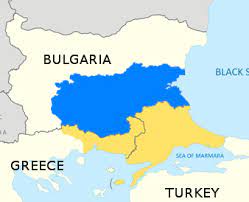
THROUGH THE AGES-FOURTH MILLENNIA BC – PART 15
3500–3000 BCE:
Between 3500–3000 BC, at Watson Brake in the floodplain of the Ouachita River near Monroe in northern Louisiana, previous civilisations built an extensive mound complex.
Shell ornaments and copper items at Indian Knoll, Kentucky evidence an extensive trade system over several millennia.
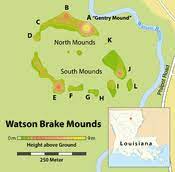
THROUGH THE AGES - THIRD MILLENNIA BC – PART 16
The 3rd millennium B.C. spanned the Early to Middle Bronze Age. The civilisation of Ancient Egypt rose to a peak with the Old Kingdom. As a result, the world population doubled in the millennium, to some 30 million people.
There's a reason ancient history fascinates us thousands of years later: Messages from the earliest recorded history still ring true.
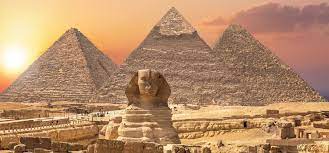
THROUGH THE AGES - THIRD MILLENNIA BC – PART 17
3000 BC and 2500 BC
The Bronze Age occurred roughly between 3000 BC and 2500 BC. The previous millennium had seen the emergence of advanced, urbanised civilisations, new bronze metallurgy extending the productivity of agricultural work, and highly developed ways of communication in the form of writing. In the 3rd millennium B.C., the growth of these riches, both intellectually and physically, became a source of contention on a political stage, and rulers sought the accumulation of more wealth and more power. Along with this came the first appearances of mega architecture, imperialism, organised absolutism and internal revolution.
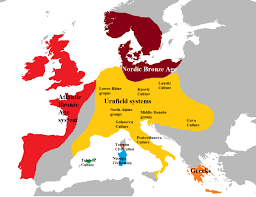
THROUGH THE AGES - THIRD MILLENNIA BC – PART 18
3000 B.C.
Sumer was one of the ancient civilizations and historical regions in southern Mesopotamia, modern-day southern Iraq, during the Chalcolithic and Early Bronze Age.
The Sumer civilization of southern Iraq uses gold to create a wide range of jewellery, often using sophisticated and varied styles still worn today.
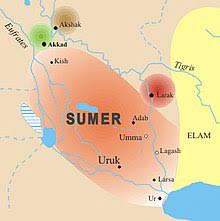
THROUGH THE AGES - THIRD MILLENNIA BC – PART 19
3000 B.C.
The earliest currency used in commercial transactions appeared in Egypt and Mesopotamia by the third millennium BC.
In the third millennium B.C. In the Middle East. The first evidence of gold was used.
Gold bars were weighed to establish their value each time they were exchanged. Later they are supplemented by gold rings for smaller sums.

THROUGH THE AGES - THIRD MILLENNIA BC – PART 20
2500 B.C
Gold jewellery was discovered buried in the Tomb of Djer, king of the First Egyptian Dynasty, at Abydos, Egypt.
At Ebla in modern Syria, an extensive trade was based on the currency of this kind in silver and gold.
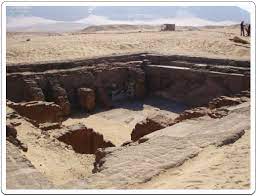
THROUGH THE AGES - THIRD MILLENNIA BC – PART 21
Stonehenge
2400 -2200 BC
Stonehenge is a prehistoric monument located in Wiltshire, England, about 2 miles (3 km) west of Amesbury and 8 miles (13 km) north of Salisbury. One of the most famous sites globally, Stonehenge, is the remains of a ring of standing stones set within earthworks. It is in the middle of the densest complex of Neolithic and Bronze Age monuments in England, including several hundred burial mounds. Archaeologists believe it was built anywhere from 3000 BC to 2000 BC. However, radio-carbon dating in 2008 suggested that the first stones were raised between 2400 and 2200 BC, whilst another theory suggests that bluestones may have been raised at the site as early as 3000 BC.
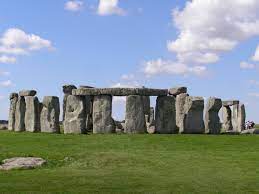
THROUGH THE AGES - THIRD MILLENNIA BC – PART 22
2134 B.C.
Earliest Trojan culture.
Troy was a city situated in Asia Minor, now northwest Anatolia in modern Turkey, located south of the southwest end of the Dardanelles /Hellespont and northwest of Mount Ida at Hisarlik. The setting of the Trojan War is described in the Greek Epic Cycle and especially in the Illiad, one of the two epic poems attributed to Homer.
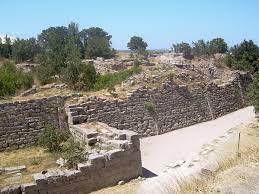
THROUGH THE AGES - CONCLUSION OF THIRD MILLENNIA BC –- PART 23
CONCLUSION
The 3rd millennium BC spanned the Early to Middle Bronze Age. Imperialism, the desire to conquer, grew in the Middle East but also throughout Eurasia. The civilization of Ancient Egypt rose to a peak with the Old Kingdom. The world population is estimated to have doubled in the millennium, to some 30 million people.
The Bronze Age occurred roughly between 3000 BC and 2500 BC. The previous millennium had seen the emergence of advanced, urbanized civilizations, new bronze metallurgy extending the productivity of agricultural work, and highly developed ways of communication in the form of writing. In the 3rd millennium BC, the growth of these riches, both intellectually and physically, became a source of contention on a political stage, and rulers sought the accumulation of more wealth and more power. Along with this came the first appearances of mega architecture, imperialism, organized absolutism and internal revolution.
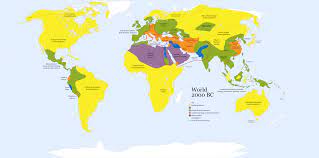
THROUGH THE AGES-SECOND MILLENIA BC 2000-1001 BC–- PART 24
1877 BC
Sodom and Gomorrah were two legendary biblical cities destroyed by God for their wickedness. Their story parallels the Genesis flood narrative in its theme of God's anger provoked by sin.
Sodom and Gomorrah are referenced in Genesis, Hebrew Bible, New Testament, the Qur'an and Hadith.
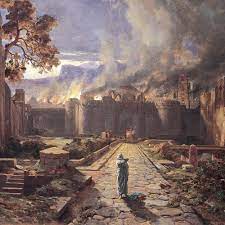
THROUGH THE AGES-SECOND MILLENIA BC 2000-1001 BC–- PART 25
1750 B.C.
Hinduism denotes a wide variety of related religious traditions native to India. Its history overlaps or coincides with the development of religion in India since the Iron Age, with some of its practices tracing back to prehistoric religions such as those of the Bronze Age Indus Valley Civilisation.
It has thus been called the "oldest religion" in the world. Scholars regard Hinduism as a synthesis of various Indian cultures and traditions, with diverse roots and no single founder.
The history of Hinduism is divided into periods of development, with the first period being that of the Historical Vedic Religion dated from about 1750 B.C.

THROUGH THE AGES-SECOND MILLENIA BC 2000-1001 BC–- PART 26
1700–1300 BC – Palace complex in Knossos, Crete, was built
The Palace of Knossos is located just south of modern-day Heraklion near the north coast of Crete. Built by a civilization that we call the Minoans, it covers about 150,000 square feet (14,000 square meters), the size of more than two football fields, and was surrounded by a town in antiquity.
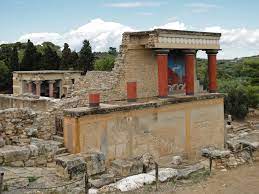
THROUGH THE AGES-SECOND MILLENIA BC 2000-1001 BC–- PART 27
1627 BC Minoan eruption
The Destruction of the Minoan Civilization
The Minoan eruption was a major catastrophic volcanic eruption that devastated the Aegean island of Thera in around 1600 BCE. It destroyed the Minoan settlement at Akrotiri and communities and agricultural areas on nearby islands and the coast of Crete with subsequent earthquakes and tsunamis.
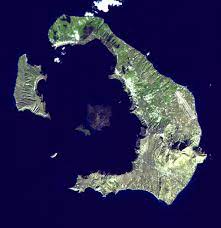
THROUGH THE AGES-SECOND MILLENIA BC 2000-1001 BC–- PART 28
1600 BC–1360 BC
The Egyptian domination over Canaan and Syria.
Canaan was a Semitic-speaking civilization and region in the Ancient Near East during the late 2nd millennium BC. The name "Canaan" appears throughout the Bible, where it corresponds to "the Levant", in particular to the areas of the Southern Levant that provide the main settings of the narratives of the Bible: Phoenicia, Philistia, and the Land of Israel, among others.
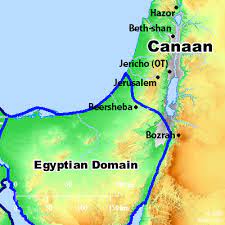
THROUGH THE AGES-SECOND MILLENIA BC 2000-1001 BC–- PART 29
1520 BC
Egypt conquers Nubia.
During the Egyptian Middle Kingdom (c. 2040-1640 BC), Egypt began expanding into the Nubian territory to control trade routes and build a series of forts along the Nile.
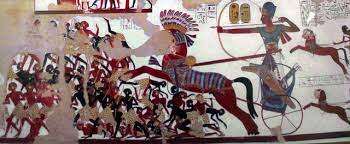
THROUGH THE AGES-SECOND MILLENIA BC 2000-1001 BC–- PART 30
1500 B.C.
The immense gold-bearing regions of Nubia made Egypt a wealthy nation, as gold became the recognized standard medium of exchange for international trade. As a result, the Shekel, a coin initially weighing 11.3 grams of gold, becomes a standard unit of measure in the Middle East.
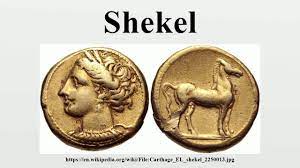
THROUGH THE AGES-SECOND MILLENIA BC 2000-1001 BC–- PART 31
1478 BC Battle of Megiddo
The Battle of Megiddo was fought between Egyptian forces under the command of Pharaoh Thutmose III and a large rebellious coalition of Canaanite vassal states led by the king of Kadesh.
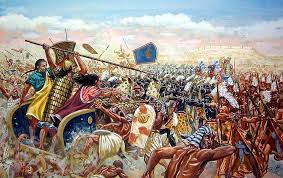
THROUGH THE AGES-SECOND MILLENIA BC 2000-1001 BC – PART 32
1274 B.C. - Battle of Kadesh
The first recorded battle in history was the Battle of Kadesh.
The battle is generally dated to 1274 B.C of the conventional chronology and is the earliest battle in recorded history for which details of tactics and formations are known. It was probably the largest chariot battle ever fought, involving perhaps 5,000–6,000 chariots.
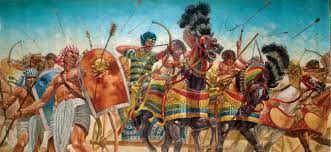
THROUGH THE AGES-SECOND MILLENIA BC 2000-1001 BC – PART 33
1274 B.C.
Founding of Judaism
Judaism encompasses the religion, philosophy, culture and way of life of the Jewish people. Judaism is an ancient monotheistic religion, with the Torah as its foundational text.
The Torah includes the first five books of the Hebrew Bible, named: Genesis, Exodus, Leviticus, Numbers and Deuteronomy. So when used in that sense, Torah means the same as Pentateuch or the Five Books of Moses.
Religious Jews consider Judaism to be the expression of God's covenantal relationship with the Children of Israel.
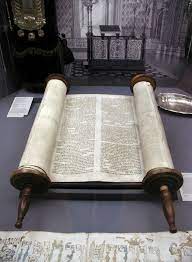
Tuesday, November 30 2021
THROUGH THE AGES-SECOND MILLENNIA B.C. 2000-1001 BC – PART 34
1235 BCE
Athens founded
Athens is one of the oldest named cities globally, continuously inhabited for at least 7000 years. Situated in southern Europe, Athens became the leading city of Ancient Greece in the first millennium BC and its cultural achievements during the 5th century BC laid the foundations of western civilization.
The Acropolis of Athens
During the early Middle Ages, the city experienced a decline, then recovered under the later Byzantine Empire and was relatively prosperous during the
Crusades (12th and 13th centuries), benefiting from Italian trade. Then, following a period of sharp decline under the rule of the Ottoman Empire, Athens re-emerged in the 19th century as the capital of the independent Greek state.
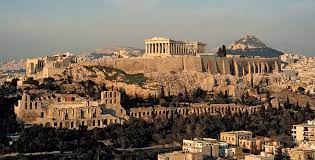
Cradle of Western Civilization
Greece was a mountainous, rocky land and was unsuitable for farming, so the ancient Greeks became excellent sailors who travelled to distant lands. Greek sailors learned from many different cultures and spread their ideas to many lands far from their homes. As a result, Greece is often known as the Cradle of Western Civilization.

Wednesday, December 1 2021
THROUGH THE AGES-SECOND MILLENNIA B.C. 2000-1001 BC – PART 35
1200 B.C. The Iron Age
The Iron Age is the period generally occurring after the Bronze Age, marked by the prevalent use of iron.
Iron production has taken place in Anatolia at least as early as 1200 BC, with some contemporary archaeological evidence pointing to earlier dates.
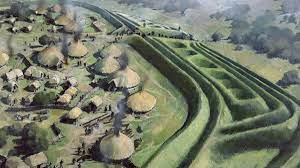
THROUGH THE AGES-SECOND MILLENIA BC 2000-1001 BC – PART 36a
The 12th century BC is the period from 1200 to 1101 BC. The Late Bronze Age collapse in the ancient Near East and the eastern Mediterranean begins in this century.
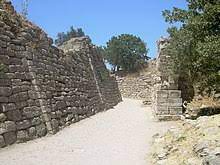
THROUGH THE AGES-SECOND MILLENIA BC 2000-1001 BC – PART 36b
12th century BC1200 BC: The first civilization in Central and North America developed in about 1200 BC in the coastal regions of the southern part of the Gulf of Mexico. Known as the Olmec civilization, its early site is at San Lorenzo.
The Olmecs were the earliest known major Mesoamerican civilization. Following a progressive development in Soconusco, they occupied the tropical lowlands of the modern-day Mexican states of Veracruz and Tabasco.
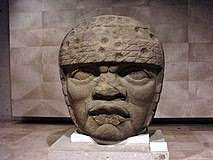
THROUGH THE AGES-SECOND MILLENIA BC 2000-1001 BC – PART 36
1200 B.C.
The Egyptians mastered the art of beating gold into leaf
The Egyptians mastered the art of beating gold into a leaf to extend its use and alloying it with other metals for hardness and colour variations. They also start casting gold using the lost-wax technique that today is still at the heart of jewellery making. Unshorn sheepskin is used to recover gold dust from river sands on the eastern shores of the Black Sea. After sluicing the sands through
the sheepskins, they are dried and shaken to dislodge the gold particles. The practice is most likely the inspiration for the “Golden Fleece”.
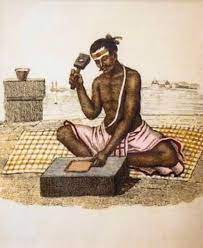
THROUGH THE AGES-SECOND MILLENIA BC 2000-1001 BC – PART 37
1184 B.C. - Trojan War
Trojan War
In Greek mythology, the Trojan War was waged against the city of Troy by the Achaeans (Greeks) after Paris of Troy took Helen from her husband, Menelaus, king of Sparta.
In the period 4000 B.C. through to 1184 B.C. (2816 years), there were only two recorded wars/battles; the Trojan War is listed as being part of Greek Mythology.
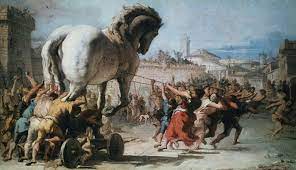
THROUGH THE AGES-SECOND MILLENIA BC 2000-1001 BC – PART 38
1178 B.C – Return of Odysseus
April 16th 1178 B.C., saw a solar eclipse and may have marked the return of Odysseus, legendary King of Ithaca, to his kingdom after the Trojan War.
Odysseus, also known by the Latin variant Ulysses, was the hero of Homer's epic poem, the Odyssey. Odysseus also plays a crucial role in Homer's Iliad and other works in that same epic cycle.
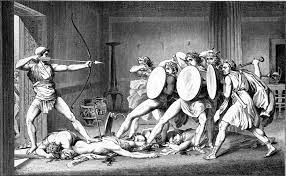
THROUGH THE AGES-SECOND MILLENIA BC 2000-1001 BC – PART 39
1091 B.C.
Little squares of gold are legalized in China as a form of money.
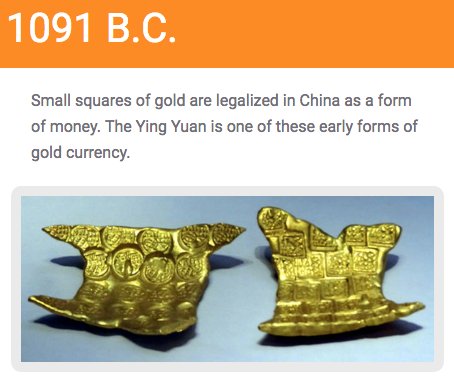
THROUGH THE AGES-SECOND MILLENIA BC 2000-1001 BC–- PART 40
Shang Dynasty - 1600BC and 1046BC
The Shang Dynasty ruled part of China between 1600BC and 1046BC
The Shang dynasty, also historically known as the Yin dynasty, was a Chinese dynasty that ruled in the middle and lower Yellow River valley in the second millennium BC, traditionally succeeding the Xia dynasty and followed by the Zhou dynasty.
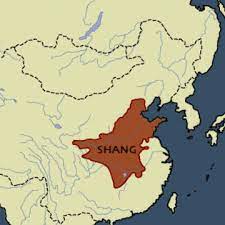
THROUGH THE AGES-SECOND MILLENIA BC 2000-1001 BC–- PART 41
1045 B.C. - Zhou Dynasty founded
Zhou Dynasty founded in China
The Zhou Dynasty (1046-256 BCE) was the longest-lasting of China's dynasties. It followed the Shang Dynasty (c. 1600-1046 BC), and it finished when the army of the state of Qin captured the city of Chengzhou in 256 BC.

THROUGH THE AGES-SECOND MILLENIA BC 2000-1001 BC–- PART 42
1040 B.C. David reigns as king of Israel
David reigns as king of Israel - Born On: 1040 BC - Died On: 970 BC
Born In: Bethlehem - Died At Age: 70
According to the books of Samuel, King David was the second king of the United Kingdom of Israel as per the Gospels of Matthew and Luke, an ancestor of Jesus.
David is described in the Hebrew Bible as a king of the United Monarchy of Israel and Judah. In the Books of Samuel, David is a young shepherd who gains fame first as a musician and later by killing the giant Goliath, a champion of the Philistines in southern Canaan.
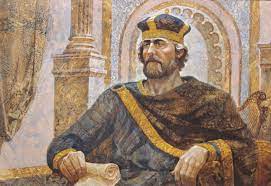
THROUGH THE AGES-SECOND MILLENIA BC 2000-1001 BC–- PART 43
1040 B.C.
Austronesian peoples discover Polynesia
Austronesians are various populations in Asia, Oceania and Africa that speak languages of the Austronesians family. They include Taiwanese aborigines;
the majority ethnic groups of Malaysia, East Tim or the Philippines, Indonesia, Brunei, Madagascar, Micronesia, and Polynesia, as well as the Polynesian peoples of New Zealand and Hawaii, and the non-people s an indigenous language, the Pattani region of Thailand, and the Chamareas in Vietnam, Cambodia, and Hainan. The territories populated by Austronesians-speaking peoples are known collectively as Austronesia.
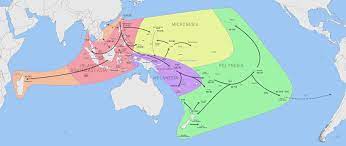
THROUGH THE AGES-SECOND MILLENIA BC 2000-1001 BC–- PART 44
1039 BC
End of the Rebellion of the Three Guards in China. King Cheng subdues the hostile kingdom of Yan near the Bohai Sea, the last group opposed to the Zhou dynasty.
The Rebellion of the Three Guards was a civil war instigated by an alliance of discontent Zhou princes, Shang loyalists, vassal states and other non-Zhou peoples against the Western Zhou government under the Duke of Zhou's regency in late 11th century BC.
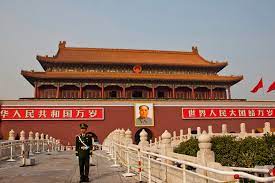
THROUGH THE AGES-SECOND MILLENIA BC 2000-1001 BC–- PART 45
1030 BC
The Belknap Volcano erupts in the State of Oregon.
The first eruptions produced tephra that spread over a broad area to the northeast and southeast as basaltic lava flows travelled eastward for 10 km (6 mi) from a growing shield. Then, about 2,900 years ago, a second phase produced minor protection known as Little Belknap.
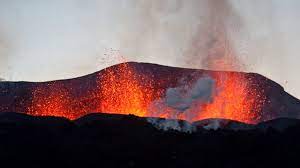
THROUGH THE AGES-SECOND MILLENIA BC 2000-1001 BC–- PART 46
CONCLUSION
1 January 2000 BC – 31 December 1001 BC
The 2nd millennium BC marks the transition from the Middle to the Late Bronze Age.
The first half of the Second Millennia BC is dominated by the Middle Kingdom of Egypt and Babylonia. The alphabet develops. Indo-Iranian migration onto the Iranian plateau and the Indian subcontinent propagates the use of the chariot. Chariot warfare and population movements led to violent changes at the centre of the millennium; a new order emerged with Greek dominance of the Aegean and the rise of the Hittite Empire. The end of the millennium sees the transition to the Iron Age. The world population begins to rise steadily, reaching some 50 million towards 1000 BC.
Spending much of their energies trying to recuperate from the chaotic situation that existed at the turn of the millennium, the most powerful civilizations of the time, Egypt and Mesopotamia, turned their attention to more modest goals. The Pharaohs’’ of the Middle Kingdom of Egypt and their contemporary Kings of Babylon, of Amorite origin, brought good governance without much tyranny and favoured elegant art and architecture. Farther east, the Indus Valley civilisation was in a period of decline, possibly due to intense, ruinous flooding.
